#the only characters aware of her racism are the ones personally affected; check
Text
POV: The writers made you the perfect racist character on accident

#rwde#like#move out the way Cardin cuz Coco has everything you don't!#has a real personality; check#the only characters aware of her racism are the ones personally affected; check#has a subtle reference to a real world racist organization; check#she's still completely gross even when you remove the racism; check#that is what racism looks like#microaggressions disguised as compliments#extreme and random hatred towards poc you come across#every bad thing said poc does is their entire personality#every good thing they do either dosen't exist or is a fluke#im not even mad I find it interesting#the writers ability to do that even on accident should be studied or something#coco adel#coco adel bashing
12 notes
·
View notes
Text
RQG 165
Live blog under the cut
"Hide the fang" sounds like a euphemism, either for killing someone or sex
I love how fast Alex is getting.
Oh first minor storm, so they got some experience with normal issues before hitting magical territory
Briefing time. Oh the one hand I still want to like Earhardt: mostly due to lingering affection from the trip to Prague, but also because I don't want to write her off over what she is like in her worst moments. On the other hand, racism isn't "I said something stupid because I was in a mood"; being reckless with the lives of other people, especially people who trust you, isn't something that can just be overlooked.
Yeah cold turkey is not the kind way to help someone break addiction. Sounds like she is actually doing better physically and mentally.
Having trouble reading her tone, she seems almost bored with the possibility of them being in danger? Ok she sounds a bit more "here" now that its moved to specifics and actionables.
Well those are some things to keep aware of.
They are to shoot at white flags? That's a bit of a line, I expected more protest but Hamid is trying to stay out of the rank issues. Zolf kind of has to back her right up until he mutinies. Cel is noted as baffled. Not sure how this hits Azu. She sort of has a point in that she was hired as an expert and for all we know pretending to be in distress is a common tactic around here.
Helen obliges the needs of the story by having Azu request an exposition dump from Hamid. Aw its nice to hear him recognized for what he knows not just what he does but he sounds nervous or hesitant. It is kind of scary when you are turned to as the one who knows the most on a subject but you know how far from an expert you are. Plus he learned in University so explaining things with accessible language when you only discussed it in a place that values jargon is hard.
Fredrick gives a practical example.
Oh Cel has experience because people live in Wild Magic areas in America.
Elf Lore! Elf Lore! Elf Lore!
Oh nomadic Elves in the North; not all Elves are nomadic these are because they are ducking the shifts of Wild Magic.
Cel is confused because they expect similar groups living in the Wild Magic areas of Russia.
Zolf clarifies that the warning is restricted to people approaching from the air. Which fair enough, everyone said how risky this is as a one time thing to save the world so probs not worth it on a regular basis.
Fredrick says staying high is protective.
Hamid is checking in on Wilde with daily gossip sessions so he doesn't isolate himself.
Re: Wilde's theories:
Eh I'm not personally a Fredrick/Siggif shipper but I could see where someone else might.
Kiko is a wild card and may hit on more than one person. Well yes? Good for her? My understanding is that part of declaring clear interest early is willingness to move on if not reciprocated rather than pining at them all voyage.
Hamid tells Wilde about Siggif being interested in Azu.
Wilde thinks someone should "take the bullet for the team but it might help everyone if Earhardt got some action while they are up here". To which Hamid grimaces, because yeah.
Except for the last it sounds like Wilde is mildly hung up on people's sex lives when personally I find unofficial rank/alliances/who looks to who more interesting but allos amirite? Even in fandom discussions with other aces, shipping is often the easiest lens to discuss relationships/dynamics between characters.
The last was not the kind of joke I like but I think was made to make a point about Wilde not being as deft at his little games anymore and forcing things. So I am going to take a moment at Hamid's grimace rather than be distracted from listening. Wilde always did like playing with boundary pushing. Hell, the first time we met him in the series, he broke into Hamid's apt mostly in a "and what ya gonna do about it" move. He might have grown on me but the man can be an ass.
Altruism!?! Also did he just imply Hamid should be the one to sleep with her?
Aw Hamid is encouraging the Kobolds to be more individual
Huh not following the transition back to Wilde.
Oh no rolling for it. Kobolds make themselves real scarce when not working. I think thats a good sign like they aren't afraid they'll get in trouble for taking time for themselves where the boss can't reach them.
Cel remains awesome and wants to develop their friendship with Skraak specificly. Aw Lydia wants to clarify it was friendship not to gain this mechanical stuff Alex is giving Cel. So 3 ranks in Kobold culture
Hamid is careful to not intrude on Cel & Skraak's time. He knows he needs to be gentle & give them lots of room so they don't get frightened, but he knows he needs to put in the work to break down that "the world will end if the boss gets mad" thing.
Oh Kobolds have a thing about people knowing where they sleep.
Yes the Sasha joke was necessary.
Oh Cel figures out where they are likely to sleep so they never come across them accidentally.
They have a simple game called hide the fang. Its not a euphemism, it just means hiding an actual fang. They are actually playing a silly game just for them and Cel is the only one out of the cohort they trust.
Lydia wants Cel & Skraak to actually be friends. They are also encouraging(?) Azu and Kiko.
Azu finds a package in the crows nest. Its ticking. She takes it to Zolf who goes with her to show it to Cel.
I love this image of Cel in the engine room.
I love Cel. Few things scarier than a clock/the passage of time.
Cel opens it with extendable tools. They have a complete set of extendable tools and Lydia makes it sound sensible. Cel is relaxed because they think its a courting gift from one of Azu's admirers. Zolf is hovering prepared to heal them after the inevitable explosion.
It is trapped so opening it leads to a small explosive charge, but Alex has his 'I'm up to something' voice on & I half remember seeing a spoiler before ducking. Plus Lydia doesn't take it as an actual threat.
Confetti!?!
Alex the condition of the clock is not our priority here. Come back after explaining what the heck is happening.
Cel was actually right from their first guess
There is a note.
Azu is still on the "wait we trust this thing stage" and Zolf is leaving now that he isn't needed.
Cel is dangling the note over Azu's head
"sorry. Here's a clock."
So its an apology from Siggif? Ok that tracks
Please like Carter would be that direct.
She was engaged when she followed the palidan of Aphrodite? "He couldn't come with" and they are friends, he's a potter.
Rock popouri sounds neat
Oh Azu tried to move on but the woman wasn't as serious about it.
Cel was married!?! Multiple times!?! Ah they have a healthy attitude and are imparting their wisdom on Azu.
Azu has the fang behind her ear.
Oh ow, really Sasha never got to do a slight of hand but Cel is using it for the fang game? Oh she did to cheat at cards with Azu.
That viral post was awesome.
Lydia teases us about that roll being the pivot point in whether Cel would have pursued Azu, but she already expressed concerns about a romance with that kind of age gap & as half the players involved that is a totally valid line. You don't need to like, read, or write, much less play a romance that makes you uncomfortable.
Unusual rock formations? If you squint it looks like it says "do not go here"
Azu picks up Hamid on the way to take this news to Zolf who is in the kitchen.
"Draal has been continuously underfoot" smelling and tasting things
Zolf keeps shouting "what do you want?". Draal keeps giving him double thumbs up and going "nice".
Zolf bumps this up the chain to Earhardt immediately.
Hamid knows mountains are in the area in general but not the specifics because maps are incomplete.
Azu apologizes for not looking to Earhardt so Zolf stops to reassure her that she did it right.
Hamid takes a look from the crows nest, there are shifting colors and it looks spikey.
Zolf is professional and efficient in reporting to Earhardt. She joins Hamid in the crows nest. Hamid is polite about asking if they should turn as well as raise the ship.
Zolf summons everyone with the "oh no" bell
Oh there is a borealis, wasn't that a sign of high magic Cel said the nomadic Elves avoided?
Its a rib cage so big they mistook it for a mountain?
Its a bear? "its a grizzly sight" it died about a year ago and has been picked clean.
"Hamid is just muttering swear words...because he can't cope" The cohort is forming a chain off the rail to get a better look. Zolf is falling into hunting the kracken mode. Cel is unimpressed, this is bigger than any they saw in America. (20 stories vs US's 3)
Wilde sounds lively and shares a dirty joke with Hamid.
There are more? Several more?Oh its corpses as far as the eye can see but in an 'elephant's graveyard' way not a 'what killed them' way
They risk going into the cloud cover to stay well above it. Hamid marks it on his map as "ursa major". Alex has to make it ominous.
#RQG 165#rusty quill gaming#live blog thingy#rqg spoilers#alcoholism mention tw#specifically recovery
1 note
·
View note
Note
Brazilian character review: Jose Carioca
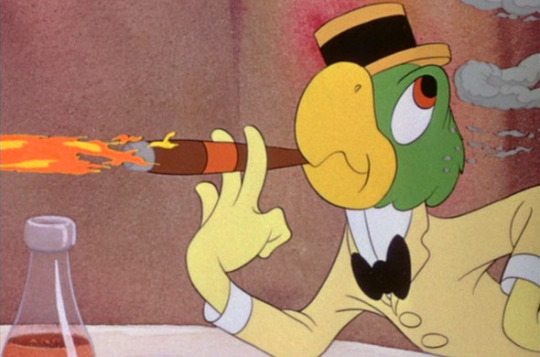
I can't say I have too many strong feelings on Zé Carioca as a character, but in retrospective, I think the existence of Zé Carioca is very emblematic of the way Brazil is viewed overseas, and the contrast between this sort of idyllic postcard fantasyland version of Brazil that gringos see, and the reality.
The first thing that comes to mind when I look at Zé Carioca, other than he's a popular Disney mascot, is that contrast. He's intended to look like a carefree young carioca (a term we use for people that come from Rio), but he's perpetually dressed like a 1920s caricature, the kind you only really find in pictures of your grandpa, and attempts to modernize his look have robbed him of his charm. His name is "José", which is a common Portuguese name usually abreviated to "Zé", but in pretty much every media he shows up in, they always say his name the Spanish way, instead of the Portuguese way.
The Zé Carioca that people outside of Brazil know is a character that only exists in the context of an ensemble with Donald and Panchito, mostly defined as a suave, romantic party goer, the phlegmatic opposite to the choleric Donald and the sanguine Panchito (I haven't checked out the new Caballeros cartoon, although I intend to). The Zé Carioca that Brazilians know is largely defined as a charismatic scammer who keeps going to great lengths to avoid work, the joke being that usually he goes through a lot more work to do so than he would have otherwise.
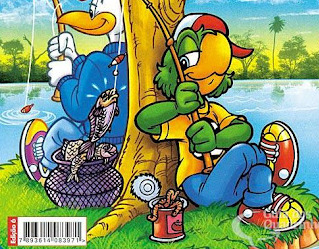
It's based a lot on the stereotype of cariocas as lazy beach-dwellers who look down on honest work to instead cheat and take shortcuts. Every region of Brazil has it's own stereotypes, in fact, Zé Carioca in Brasil has a lot of relatives to embody those, but gringos treat Brazil like Rio is the only city in it, which is why this stereotype gets applied to Brazilians in general, and, well, it is a stereotype to begin with. It's a change that allows him to work as a solo protagonist, but it also leads to a disconnect where fans of Zé Carioca don't quite see eye-to-eye with most depictions of the character not made locally, because it's not really the same character.
I gotta stress that I don't dislike Zé Carioca, not at all, I do think the idea behind his creation was a good one. I can't think of any Brazilian character, either created here or just coming from Brazil, who was a popular name overseas during this time period (could be wrong though, but nothing comes to mind). He gets credit for that, if nothing else. He's a fairly cute character and I do like seeing him when he does show up. But Zé Carioca seems like one of those characters who is popular as a mascot, but not so much as a character.
I think the best way I can explain this disconnect between what Zé Carioca is by sharing this text I found, written by Gabriel Bayarri here, that I translated and post below. I think this kinda gets to the heart of how I feel about Zé Carioca, which is not a dislike, just a disconnect.

Brazil was the land of Zé Carioca, he who had shown the world in 1942, during WW2, a Brazil that seemed cordial and happy, a Brazil that valued it's mixed heritage as a symbol of national culture. The parrot presented to Donald Duck a city proud of itself, joyfully beautiful, where samba, cachaca, parties and romantic rascals all mixed together.
Now, he's watched, terrified, as his wonderful city embraced armed heroes, and took flight perplexed, trying to understand what had changed in a city he recalled painted in watercolor strokes. Zé Carioca flew to the heart of the tropical city, where spaces of resistance stood symbolized, straggling remnants of a democracy that he used to think was harmonious and shielded against the monsters that ruled it.
The parrot fluttered its wings between the hills, and rested its feathers in its beloved square in Cinelândia, and breathed its history, of which he only recognized the harmonious part: the square had become a central place for beginnings of the 20th century, representing the Belle Époque of Rio de Janeiro. Cinelândia acquired French features, so desired by the recent Brazilian Republic, and it tried to become a Tropical Paris. At it's center, slaves recently freed from plantations arrived, while the square acquired a cosmopolitan personality. This was all familiar to the parrot, who found in history a joyful account.
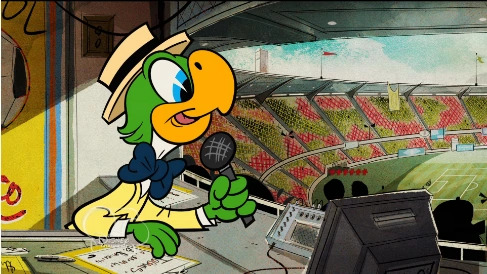
From abroad, the narrative of a happy and harmonious Rio de Janeiro recovered the idea of a cordial Brazil, without racism and without violence, promoted by Zé Carioca. In addition, this imagery of the city was promoted to foreigners as the period of a “Golden Brazil”: the drop in poverty rates, the increase in investments and the enormous influence in the Latin American and global context.
The bird breathed the chronicles of literary bohemians who populated the surroundings, and who built in their writings the characters who walked the square, its muses, its rogues, its carnival heroes or its capoeiristas. Authors built at that time a model of the “carioca people” that the parrot Zé Carioca repeated and synthesized in his image: a kind, cordial and warm character who crossed borders, transmitting to the world a image of Brazil harmonized and absent from conflicts and violence. It was that conception that, in Brazil, everything would tend to soften and adapt.
Cinelândia had begun to fill with cinemas, rooms of spectacle. Hotels, restaurants, night bars. The arrival of hotdogs at the Square was a revolutionary bridge, from North-American influences to the carioca lifestyle.
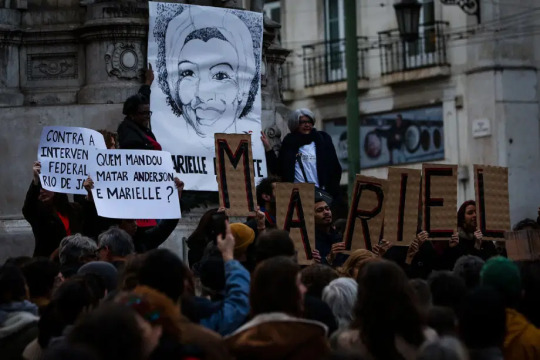
The parrot was proud of his city, until a woman approached him: “Our hot dog is carioca to the core”, explained the street vendor who was carrying a T-shirt with the face of Marielle Franco. Who was this woman who wanted to explain to him what was like to be brazilian: Who was this woman on her shirt? Where was Carmen Miranda, with the fruits on her head?
Then, the parrot listened in the square to the story of the murder of the councilwoman Marielle and her driver, and the new reports of violence on “carioca nights”, and its police conflicts against immigrants.
But Zé Carioca did not believe that his beautiful city was affected by these issues.
The parrot was aware that Cinelândia represented an image of the essence of what it was to be Brazilian, the construction of its own unique soul in a public space, the creativity and trickery and joy.

But he was surprised to hear that his happy and dancing people were also active warriors, who had used this square over the decades as a historical space for building demands, from The March of 100.000 against the military dictatorship, and the recent manifestations against the new president.
In one of its streets, the square bore the name of Marielle herself, the murdered councilwoman whose plaque had been broken publicly by the current governor of Rio, and whose death had become a symbol.
The parrot had Disneysified the image of his city, in a portrait of heroes, castles and tropical princesses, which made it difficult to understand now the political victory of monsters.
It seemed as if the history of Brazil was rebuilding itself before his eyes, and its people were now made up of activists, women warriors, LGTB+ collectives and anti-racism movements that defended civil rights and identity demands, of a Brazil that could not be pigeonholed, because it wasn't made for beginners.
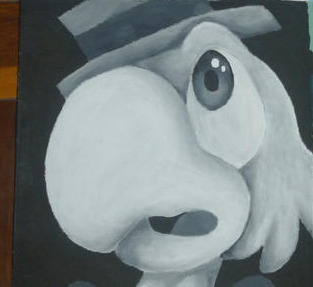
What had happened to his colorful Brazil? – he asked himself nervously, replacing his straw hat and plucking his feathers.
Something transformed in the parrot's gaze, and after a brief disturbance, he decided to regain his composure. The bird spread its wings and took flight to Copacabana Palace, the place where it had been born from the hand of Walt Disney 77 years ago. He needed to reflect, think of the the gray tones of truth that splashed in his colorful costume, and seek new spaces to resist the monsters.
Perhaps the world had believed Zé Carioca's colorful report, in the palette of illusions that an emerging Brazil offered, and they had forgotten that, like every grown child, Brazil had nightmares. Kicking up at night over its racism, structural militarism, murderous violence, patriarchal inequalities.
Perhaps Zé Carioca had fallen in love with the exuberance of a land of fruit, sailors and smiles, and the world had listened to his account, a lovable sales pitch to tourists and sporting mega-events, and they had forgotten the voices of their people who watched helplessly the approach of a military parade from congress.
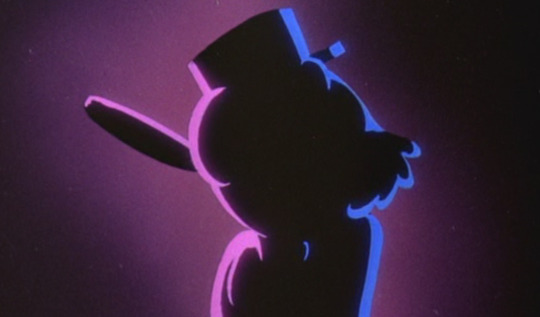
Zé Carioca's flight transformed the parrot, and in his old age, he went through a rite of passage to adulthood. After years of blindness to the violence of a post-colonial society and it's extended torture under jackboots, Zé Carioca opened his eyes, and faced the hidden part of a wounded Brazil.
A Brazil that had been dressed up in tropical colors and that now had to be sincere, with the world and with itself, in order to overcome the times of monsters.
#replies tag#disney ducks#jose carioca#zé carioca#brazil#BRASIL HUE PORRA#olha pra ser honesto eu nunca tinha realmente parado pra pensar no zé carioca na minha vida#mas tu quer um textão vai ter textão#não que eu ache ruim que o personagem seja meio antiquado#mas eu achei bem interessante a ideia de isso ser parte de uma história#em que o zé carioca é um simbolo de uma coisa que simplesmente não existe mais#e talvez nunca tenha existido#acho que isso pode ser uma ideia interessante pra explorar
81 notes
·
View notes
Text
i’ve been really feeling the energy surrounding the discourse on race re: the falcon and the winter soldier, and i think it is so crucial that the mcu has created space for this conversation. in that vein, and because i have genuinely enjoyed the show for many reasons that i wish not to detract from, i would like to expand on this space by discussing ways in which the show could have engaged more thoughtfully with its themes of racialized trauma.
for your consideration, a list of the show’s side characters who identity as bipoc, and how their arcs in fact work to reify certain stereotypic portrayals of race in tv/film/etc:
isaiah bradley: the military-sanctioned super soldier program that experimented on bradley for 30 years in jail is a clear allusion to the tuskegee study in the mid-1900s, which subjected black bodies with syphilis to decades of unethical experimentation, including the withholding of life-saving treatment, in order to study the natural progression of the disease. i actually think his conversations with sam were so important to have. it’s the first explicit mention of race that problematizes the shield as a symbol. sam comes to acknowledge that it also stands for a country that has built itself on the backs of black (and immigrant) bodies - and that is where they mean for these bodies to stay, through exploitation of labor, medicalized violence (tuskegee being only one example of many), police brutality, the segregation of schools, discriminatory housing and criminal justice systems, and so on. my issue is that these systems of oppression are so deeply rooted that to skim the bare surface - to present this one singular narrative - is reductive of a longstanding history that does not live externally to the mcu and is frankly not going to cut it. waiting until episode 5 to have this conversation was also a disservice to sam. maybe his own generational trauma was too internalized for him to have the language to express it. but if the show had addressed this better and sooner, it would come off less as sam trying to move through the world thinking he’s just like any other guy who also happens to be a superhero. when he goes to the bank with sarah, flaps his ‘wings’ and still doesn’t qualify for a loan; or when he chides a kid for referring to him as ‘black falcon’ rather than, simply ‘falcon’ - these moments reinforce the idea that the lived experience of his blackness is not fully realized until bradley forces this articulation upon him. it is as though sam could not already be aware of their collective racialized trauma without the ‘revelation’ of bradley’s personal trauma writ large that he endured as a super soldier. which is just weird and inconsistent given what sam has been through, including his own troubled relationship with the military. for sam to take up the shield is not a ‘solution’ to racism, any more than the shield is a symbol of heroism, when its legacy stems from a country of deeply imperialist and colonialist roots.
lemar hoskins: relegated to the black best friend stereotype aka sidekick to the main white character. his two most memorable scenes function mostly in service of john walker’s story - firstly in walker’s decision to take the serum, and secondly as the catalyst to walker’s grief, rage and vengeance that will utterly transform him. this development of walker’s character can only occur through the literal death of another black body.
literally every east asian character, but specifically leah, yori and yori’s son rj: these characters are the least fleshed out on their own, as they all exist solely to lend more depth to bucky’s trauma. i say this because though yori is grieving, his grief is all secondary to bucky’s guilt over being the cause of that grief. leah, who plays a love interest for her five seconds of screen time, becomes yet another of countless examples of the fetishization of asian female bodies. (all of this is particularly tone-deaf in the wake of rising anti-asian hate crimes, and the mass killing of asian female spa workers by a man who wished to eliminate ‘temptation’ for his sexual addiction.) also, it would be nice to see a show finally lean away from the asian food establishment setting for its asian characters. that is not the only place they eat and work and also go on dates after they work????
olivia walker: a great example of tokenism that checks multiple boxes (‘look how diverse our cast is - and we have an interracial couple!’) even though she speaks 0-2 lines throughout the whole show.
karli morgenthau and co: the actress who portrays karli is half-jamaican, and it is not hard to notice that the overwhelming majority of the radicalized flag-smashers group are bipoc as well. at surface level it might make sense for the show writers to choose this kind of representation - the ‘displaced’ are all members of marginalized communities, and racial diversity (i.e., diversity from the norm, i.e., not-white) is the easiest way to depict these communities. but for this reason, it also seems that the show could not be more careless with the parallels it has drawn to our current climate. during a global pandemic, which has disproportionately affected those already most disenfranchised; increased our obsession with border control; and galvanized movements against racialized violence, perhaps the last thing we need right now is a narrative that vilifies a marginalized group of people trying to combat structural oppression (operationalized in this case by the grc, which has a clear militaristic and political pedigree*). perhaps the last thing we need right now is a narrative in which marginalized people gain the power to enact change (i.e., serum), but only know how to use that power to cause more harm.
*please note: the senator who grants walker his other than honorable discharge is one and the same as the talking head of the grc. who gave this guy all the power, and what good is he using it for? this may be a hot take but the government + military washing their hands of walker and taking zero responsibility for their role in his making is not great for ‘optics’ either. but the show, for all its moralizing, doesn’t seem to be aware of the dissonance here?
#the falcon and the winter soldier#tfatws#tfatws spoilers#tfatwsdaily#marveldaily#dailyavengers#race#racism#racial politics#thcrin#userbells#thank you for coming to my ted talk#a gentle reminder that#enjoying a thing#and engaging critically with the thing we enjoy#are not mutually exclusive!#curious to know other people's thoughts
90 notes
·
View notes
Note
I am worried about inclusiveness in my story. I've had these characters in my head for more than 10 years, maybe even 15. When I created them I was a child. As I grew up, I started "upgrading" my story & making it much more fitting to my age now, an adult. However, I don't have much inclusiveness in it. It's in a high fantasy world. The main character is bisexual, & his ex-boyfriend has darker skin. But other than that... I'm having a hard time changing the characters from what I imagined them.
This is a good and complicated question. I’m glad you asked.
There are problems here, and I think you’re finding you’re confronting them but you can’t quite identify them.
The thing about inclusiveness, about adding diversity to your work, is that it can’t really be solved by surface changes like-- oh this character is black now, all better. BECAUSE diversity is actually about more than just the color of a character’s skin.
Diversity is about differences of life experience, culture, mindset, history, perspective, values. It’s about recognizing that the world is not just one, standard existence, but a multiplicity.
We are in a time now that is *changing* the way we understand people and identity.
You started this story when you were a child and didn’t recognize all these complexities, and to tell the truth, society itself didn’t really recognize them at a larger level. There’s a reason why you as a kid didn’t see them.
Because our culture as a whole has identified white people as the default people. Specifically white, middle/upperclass, christian, able bodied, straight, cis men as the default person. ANYTHING you have other than that has to be identified, otherwise, we assume they are the default person.
The HERO is always this default person until we define them as otherwise, female, Black, poor, atheist, deaf. Oh look. There’s a new character who has a distinctly different experience than our default person. And you then have to WRITE them with that experience in mind, or you’re just writing the default person in a mask that is only skin deep.
So what I’m trying to tell you is that it’s not really diversity if you just change the color of your character’s skin without letting it reflect upon who they are as a person. And then how that affects your story. You can’t JUST make someone in a wheel chair without changing their part of the story on a fundamental level, don’t you think? If you switch your character from non stated but assumed Christianity to Judaism... how does that affect your story or character? And if it doesn’t, well lets say it’s irrelevant to the story, then how do you share that bit of background of the character, make it authentic and not seem as if you’re just checking boxes on the diversity list? Do you even know enough about Judaism to write them fairly or will you just toss in some yiddish-- “Oy, what a shmuck!” and leave it at that? Ok well maybe your fantasy world doesn’t have Jewish people. Fair enough.
But now I need to question your world building. Is everyone in your book of the same culture? Are there different races, religions, creeds, classes, ethnicity? If there aren’t, why not? Are you writing a world where no one travels? Where there’s an oppressive force that requires everyone to worship the same gods? Even JRR Tolkien had multiple races, languages, belief systems and cultures. I say “even” because Tolkien is often taken as the “whiteness model” of fantasy. The British/northern European ideal.
You might be attached to the way your characters look. You’re also probably attached to the world view that white is the default. We all are, frankly. The first novel I wrote I made it about a blonde white woman from the Bronx, where I am from, where blonde white women are few and far between. And I didn’t address how this white woman lived in The Bronx surrounded by mostly brown Latinx people. To be honest, I think I had internalized that concept of white people being the default, of ALL books being about the white experience and that was just how you write a story. If I were to rewrite that book now, I would make her Latina. I could keep the main story the way it was, but switching her to Latina would require a hefty rewrite as her character, experiences, understanding, perspective and the way she looked at herself and her world would be different.
What you need to do, IF you want to add diversity to your novel, is to do a major overhaul of your understanding of what it means to be human and how our differences and intersections shape our identity and experiences. That means a major overhaul of your story.
OR you could leave your story the way it is and don’t add diversity to what seems to be a complete story already, just to fit the times and concerns of the day, STILL do the work of overhauling your personal understanding of diversity, and then in the next book, build that diversity in from the bottom up.
Even if you leave the book with everyone looking the way they already do, you might try adding an AWARENESS of race, diversity, otherness, bias, bigotry, etc. White people ALSO move through this world with people who don’t look like them. Acting like white people don’t have any repercussions from living in this racist society is making a statement that not only is the white experience the default experience and the way things should be, but also racism is just a given and doesn’t need to be examined, since it only affects POC.
Any way you take it, it’s a lot of work. That’s because confronting your own biases, blindspots, assumptions and unspoken prejudices is HARD and takes constant work.
46 notes
·
View notes
Photo
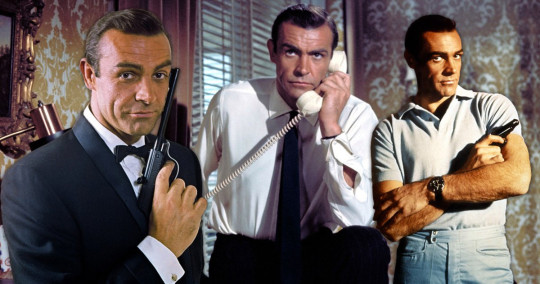
How My Love for Sean Connery and Bond Led to a Serious Case of White Guy Hero Infatuation Syndrome
Like a lot of people all over the world, I have long considered myself a stone Sean Connery fan.
I often recited the juiciest dialogue bits from his Oscar-winning turn as a beat cop-turned crusader in he Untouchables (in addition to the speech everyone quotes, I loved how he told Eliot Ness he knew he was a treasury agent without seeing his badge because “who would claim to be that who was not?”) I watched the painfully clumsy 1986 B-movie Highlander mostly for his charming turn as Egyptian (!) immortal Juan Sánchez-Villalobos Ramírez.
And, of course his work as James Bond always set the ultimate example for urbane cool. Which explains why I often felt the theme song thrumming in my head whenever I wore a stylish suit or hopped off a plane in a cool city. For men from the generation before mine, he practically defined the sophisticated, stylish machismo found in the pages of Esquire and Playboy.
youtube
For these reasons and more, I have always loved the rogueish Scotsman as an actor. And yet, when news of his death at age 90 spread across the world, I couldn’t bear to pay tribute to him on my social media pages, until now.
That’s because his passing highlighted my problem with a particular malady. I call it White Guy Hero Infatuation Syndrome. And I have suffered from it for many years.
Put simply, my fan’s brain knows that Connery’s landmark performances were the stuff of film legend – especially as Bond. Cool, authoritative, suavely menacing and mostly unflappable, his take on a secret agent who knows the best suit designers nearly as well as the best pistol manufacturers set the template for escapist espionage fantasies over the next half century and beyond.
His first line as the character – “Bond. James Bond.” – has become pop culture legend.
But as a media critic, I also have to contend with James Bond’s status as a relentless sexist and a British agent who walked the world as if it was made to be ruled by wealthy, capable white men. Watch him slap the behind of a pretty blonde who was massaging him poolside in 1964’s Goldfinger when CIA agent Felix Leiter turns up for a chat. “Man talk,” he tells her dismissively, sending her out of the scene.
Or check out how he treats Quarrel, the bug-eyed Black man who acts as a “fixer” for him in Jamaica during the first Bond film, 1962’s Dr. No. Scrambling across a beach to avoid the bad guys’ goons, Bond turns to Quarrel and tells him “fetch my shoes” -- as if he were his butler, rather than a local ally helping him avoid thugs with automatic weapons.
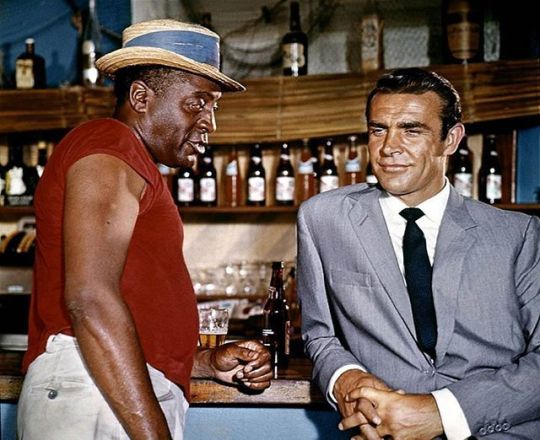
And there’s loads of scenes where Bond forces himself on women who quickly succumb to his charms – like Honor Blackman’s character in 1964′s Goldfinger – perpetuating a dangerous myth that a man can earn a woman’s love by pushing her into being romantic with him. (Or that a dismissive, vaguely annoyed tone with women – treating them like impertinent children or misguided simpletons – is also, somehow, irresistible to them.)
When Connery played Bond, he played a character who was the embodiment of white privilege. He made it look sexy, virtuous and necessary – the natural state of things in a 1960s-era world that, outside the comfortable confines of Bond’s make-believe spy games, seemed to be coming apart at the seams. But in the America of 2020, it’s a symbol of how media can teach you to accept a limiting legend.
And this was a fantasy I bought into eagerly. As a kid, my mom and I bonded over the heroic white guys she loved on film and TV, mostly from westerns. Just this past December, as she was fighting cancer and months before she would succumb to an infection, we sat and watched Clint Eastwood, Charles Bronson, Kevin Costner and Robert Duvall save the day too many times to count.
As I got older, I’d make fun of all the misogyny, racism and white centering going on in these shows – gibes which my mother, a proud Black woman who loved her people and culture, tolerated with a weary smile. “These are my guys,” she’d say playfully, swatting aside any idea that there was a deeper impact from gorging on stories which treated these virtuous white men as the noble, natural center of every story. I wish the issue were that simple; it often isn’t.
For me, it wasn’t just a problem with Connery. As a kid, I loved Eastwood’s 1970s-era Dirty Harry movies, where the taciturn cop with a Magnum pistol cut through all the nonsense to nab the bad guy. Same with Bronson’s Death Wish films, where the solution to rampant street crime wasn’t better policing, but a taciturn, middle class white guy with a gun shooting down street criminals. It’s a potent fantasy, especially if you’ve ever had to deal with the numbing bureaucracy of real-life law enforcement or the brutal violation of being a crime victim.
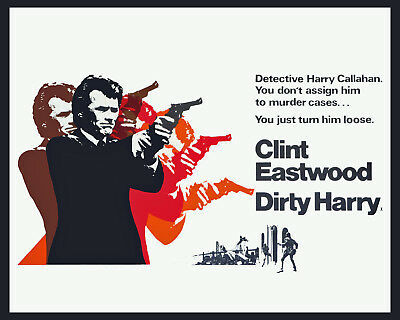
It wasn’t until I got older that I realized many of those bad guys Harry Callahan was hunting were young hippies and Black people – the kind of folks who, in real life when Dirty Harry was released in 1971, were trying to get America to face how it was chewing up poor, young men in an unwinnable, unnecessary war in Vietnam. It was a prime example of “copaganda” – convincing the audience that the excesses Detective Callahan committed to nail a person the audience already knew was a serial killer, was justified.
Even now, I wonder: Can I watch these movies and appreciate why they are thrilling, while rejecting the tropes that present a white male-centered world as just and appropriate? In my work on race and media, I’m often telling audiences that people who insist they are not affected by media subtexts are often the most affected by them. Couldn’t that be true for me, when it comes to heroes like Eastwood, Bronson and Connery?
(One caveat: Sitting in an arena in Tampa, watching Eastwood give his infamously strange “empty chair” speech at the Republican National Convention in 2012, broke me of my affection for his work. I have avoided watching new Clint Eastwood films since then. Click here to read my report on the empty chair speech for the Tampa Bay Times.)
In his later years, Connery denied or walked back quotes where he seemed to approve of physically hitting women in real life. His roles in films like Highlander, The Untouchables, Hunt for Red October, Indiana Jones and the Last Crusade and The League of Extraordinary Gentlemen often featured him playing the older mentor to younger white guy heroes portrayed by the likes of Harrison Ford, Alec Baldwin and Kevin Costner.
And so, as the question of Connery’s legacy in show business arises, the fanboy part of me is at war with the media critic. One side of me is lost in the absolute coolness of the suave masculinity he so often symbolized, particularly as the world’s most successful secret agent.
The other is painfully aware of the inequalities and oppression such portrayals enabled, and how much they may feed our real life fantasies for a powerful white male savior to set things right, even now.
Especially now.
And saying these characters were a product of their flawed times somehow doesn’t seem enough.

This is a tough column to write, and not just because there are so many fans who want to focus on the best moments of Sean Connery’s life now that he’s gone. It’s difficult because he was a personal hero of mine for a long while – and remains one of my favorite performers – even as I acknowledge the terribly male-centric and white-superior ethos he embodied in so many roles.
This may sound like disrespectful nitpicking to hardcore fans and family. It’s never easy to sit with the more uncomfortable aspects of a great artist’s legacy. And the time after his death has been filled with heartfelt tributes to Connery, a man of great talent and no-nonsense sensibilities who was respected and loved by a great many people who worked with him.
Sometimes the media critic’s job requires being a buzzkill; insisting the public pay attention to troubling aspects of a film or TV show that we would all just rather sit back and enjoy. Because part of unwinding the effect of past portrayals is acknowledging their power in the present day.
Which means, every time I watch Connery stride to a baccarat table in Goldfinger, Dr. No, or Diamonds Are Forever, archly demanding a precisely constructed alcoholic beverage, I also have to remind myself of the damage done by too many characters like that offering too constricted a vision of what a hero looks and acts like. And I suggest you do the same.
It's the only way to balance a comforting myth with the reality of how that legend can, unwittingly, teach us to cling to ideas that ultimately hold us back.
11 notes
·
View notes
Text
Memories : Top 15 Films of 2020

If 2020 taught movie fans anything, it was that we shouldn’t take things for granted. On the dollars and cents side of things, movie theaters were already facing an uphill battle to stay sustainable, but the “shelter-in-place” practice of March and beyond decimated box office returns, with many theaters yet to reopen (if they will open at all). In terms of famous names and faces, the list of those who passed away featured numerous icons : Kobe Bryant, Kirk Douglas, Max von Sydow, Honor Blackman, Carl Reiner, Ennio Morricone, John Saxon, Wilford Brimley, Chadwick Boseman, Sean Connery, Tiny Lister Jr., Adolfo ‘Shabba Doo’ Quinones and many more transitioned to the great beyond. Netflix, Hulu, Amazon Prime, Shudder and a number of other streaming services saw themselves step into the forefront of the entertainment provider realm, with Warner Brothers and a handful of other studios making announcements that they will be following suit for at least 2021, if not for good.
With all of this uncertainty and chaos, however, the year 2020 was a surprisingly strong one, in my opinion, when it came to cinematic output... so much so, in fact, that aside from a number of Honorable Mentions, my list of top films was expanded to 15 in order to accommodate all of my choices. For anyone who has checked out my lists from previous years, you will know that I did not see every film released this year, but I did make my best effort to cover as wide a range of films as possible. Enjoy the list, and be sure to support film in whatever medium you are able to moving forward so that it can thrive.
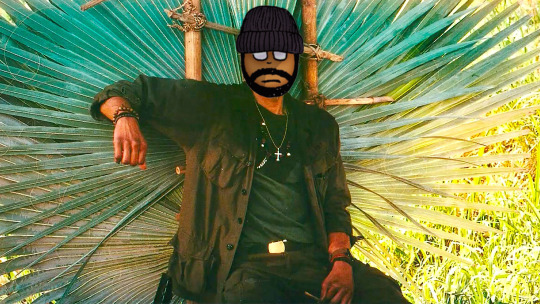
HONORABLE MENTIONS
The 40-Year-Old Version (dir. Radha Blank)
A nice little personal film that spoke to my hip-hop sensibility, as well as that ever-present awareness of the inevitability of age, and how it can skew our perspective in regards to our achievements.
Ava (dir. Tate Taylor)
This isn’t the action film that’s going to reinvent the wheel, but if you look at action films like wheels, this is a quality wheel. Outside of Common, I couldn’t really find much to shoot down... this will definitely be one I consider the next time I have company and we’re looking for something fun to check out.
Bill & Ted Face The Music (dir. Dean Parisot)
I honestly would have been satisfied with just two films in this franchise, but surprisingly, a third entry was created that didn’t ruin my overall enjoyment of the previous two films. Keanu Reeves and Alex Winter jumped in without missing a beat, a healthy dose of familiar faces popped back up, and the new cast additions weren’t too jarring... it’s nice to know that a pair of my favorite childhood films are officially now part of a trilogy.
Borat Subsequent Moviefilm: Delivery of Prodigious Bribe to American Regime for Make Benefit Once Glorious Nation of Kazakhstan (dir. Jason Woliner)
This was possibly the most surprising release of 2020... outside of a couple of news blips that Sacha Baron Cohen made during production, not a lot about this film was leaked prior to its release. For such a dated character and a seemingly outdated style of humor, Borat once again exposed the simplest parts of society in an incredibly insightful (albeit cringey as all get-out) manner.
Guns Akimbo (dir. Jason Lei Howden)
One of the most fun films of 2020. Somewhere, the creative minds behind Nerve are wishing that they’d made this film instead.
Henrietta and Her Dismal Display of Affection (dir. Jeffrey Garcia)
Jeffrey Garcia is the homie, and I’ve had the pleasure of being in a number of his short films, so when he announced his intentions to write and shoot a feature film in 2020, I was completely on-board. Miraculously, he was able to film the movie while the world was being ravaged by COVID-19, and though I cannot publicly announce details yet, this film has definitely already met (and likely succeeded) his expectations.
The Midnight Sky (dir. George Clooney)
With each film that George Clooney directs, I realize more and more than he is an old soul trapped in a body idolized by the new school of film. That being said, it’s nice to know that there are directors out there willing to embrace patient, silent and contemplative moments while simultaneously withholding from force-feeding viewers exposition.
Tenet (dir. Christopher Nolan)
This was possibly the most anticipated release of the year, considering it was the king of the IMAX release crowd in its pre-release promotion. After a small delay due to COVID-19, it was one of the first films released in hopes of testing the movie-going waters during what was sure to be a diminished period of time, which probably hurt its numbers. Too many, the film was confusing, and the nit-picking was fierce from the criticism contingency, but in all honesty, this was pretty impressive Nolan fare... certainly a good second movie in a Nolan double feature.
The Trial of the Chicago 7 (dir. Aaron Sorkin)
I cannot tell a lie... I was hugely impressed with how Sorkin managed to reel his personality and voice back in order to let this well-known, controversial moment in time present itself. Sorkin has a tendency to be the star of his films, be it when he is in the writer or director role, but for this film, he managed to focus the best parts of his skillset into a highly respectful, educational and inspiring tale that fit the tumultuous summer we endured.
VHYes (dir. Jack Henry Robbins)
I remember seeing this trailer as 2019 was coming to a close, and it was a film high on my list of desired viewing. Then 2020 reared its ugly, stupid head and many releases disappeared into obscurity or found themselves delayed. Luckily, this one slipped through the cracks and found a home in the streaming world, which in all honesty, suited its presentation very well. One of the most delightfully weird films of the year, hands down.
Vivarium (dir. Lorcan Finnegan)
Of all the films cut from my Top 15 list, this was the toughest cut to make. I went into the film totally blind (with Jesse Eisenberg and my respect for his acting chops being the sole selling point), but this film really hit a lot of my buttons... it’s trippy as can be, there is a character that is freakishly unique and wholly unnerving, and the production design leaves a lasting impression. Don’t let the Honorable Mention designation fool you... this one is a winner.
Wonder Woman 1984 (dir. Patty Jenkins)
The Christmas gift that the masses collectively decided that they did not want. Much like Ava, there is one glaring aspect of this film that I could have done without, but otherwise, I found this to be an enjoyable film. Gal Gadot was made for this role, while Kristen Wiig and Pedro Pascal stepped up to the plate and impressed. If you’re looking to be blown away, the Wonder Woman franchise isn’t the smartest place to go, but if you’re looking for entertainment, there’s plenty of it here.
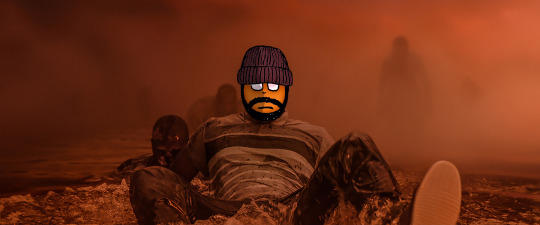
THE TOP 15 FILMS OF 2020
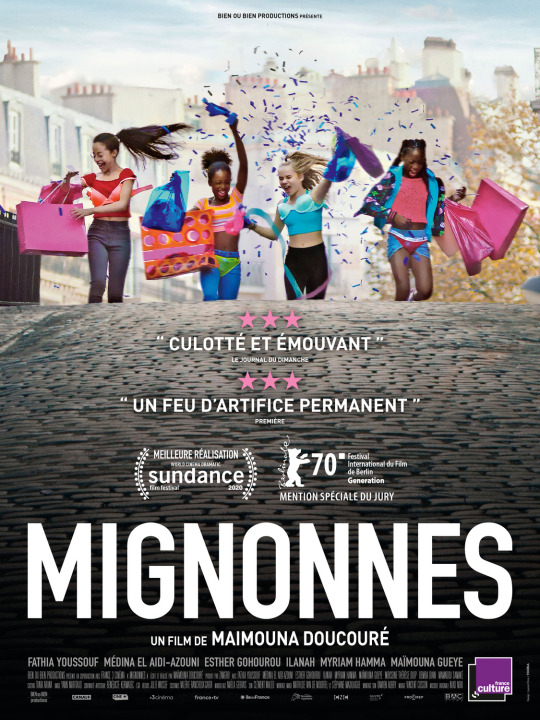
15. Mignonnes (dir. Maïmouna Doucouré)
This one started off the year with plenty of controversy. What was an award-winning tale about womanhood and the difficulties surrounding coming of age in an ever-changing and evolving world quickly devolved into a campaign to ban the film (and Netflix). Many people overlooked the film as a cautionary tale about what access to the Internet and the sexually-charged nature in which women are portrayed can do to developing girls, instead choosing to accuse the film of being fodder for malicious types seeking to exploit the sexualizing of young women. More than anything, in my opinion, Mignonnes served as an example of our outrage-fueled culture and the way it tends to skew our perspective and/or our ability to take art at face value.
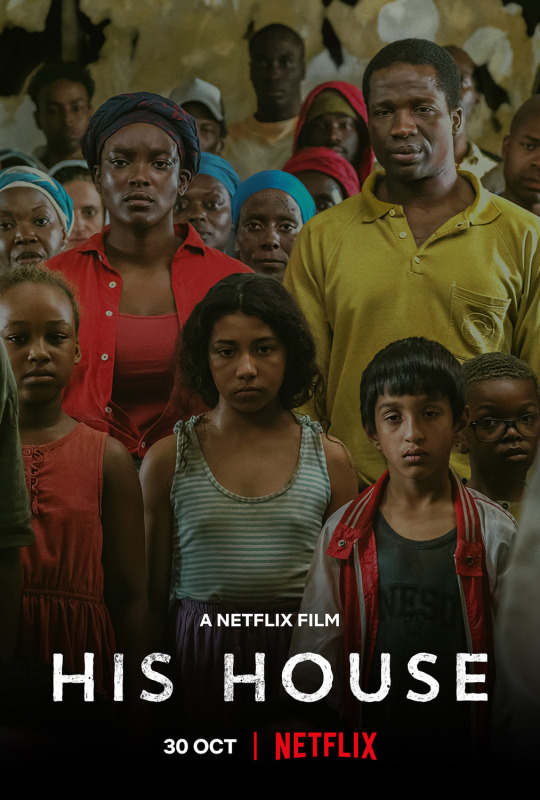
14. His House (dir. Remi Weekes)
As I’ve mentioned many times over the past week or so on this blog, horror films were one of the few genres that found a benefit from the film industry’s transition to streaming services for primary access to film. While a number of traditional horror films received notice, His House took the opportunity to not only make a pure horror film, but one that spoke on racism and the conditions that asylum-seekers and refugees face. The film is well-acted, the production value is high quality, and it’s paced beautifully... while not the highest film on this list, it is certainly one I will encourage others to see as time goes by.
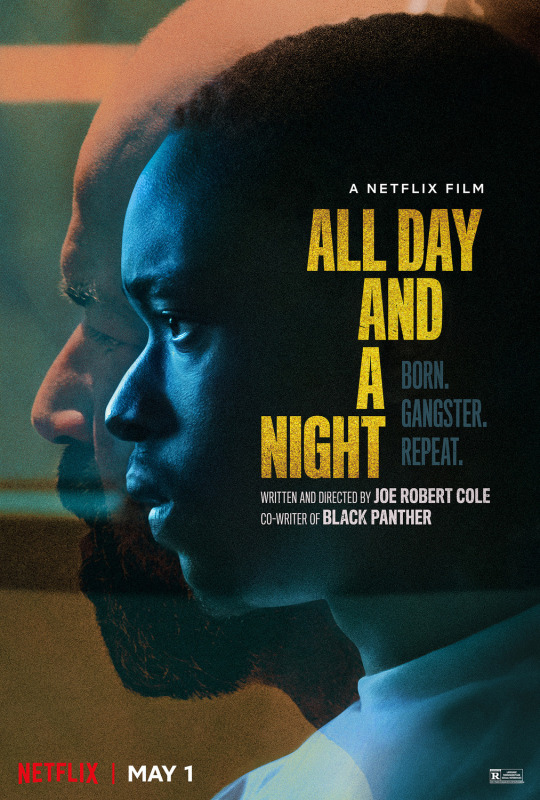
13. All Day and a Night (dir. Joe Robert Cole)
When human nature reared its ugly head during COVID-19 in the form of numerous race-related killings, multitudes of businesses quickly adopted the Black Lives Matter mantra, with film distributors and streaming services taking advantage of the moment to produce and release content relevant to cultural and social awareness. Netflix was no different, and of the many films they released in the wake of the harrowing events, All Day and a Night is the one that feels the most sincere and honest in its approach and presentation. The streets of Oakland are presented with a vast array of characters, each with complex backgrounds and states of mind, all of which helps the viewer understand the pressure many minorities live with and process on a daily basis.
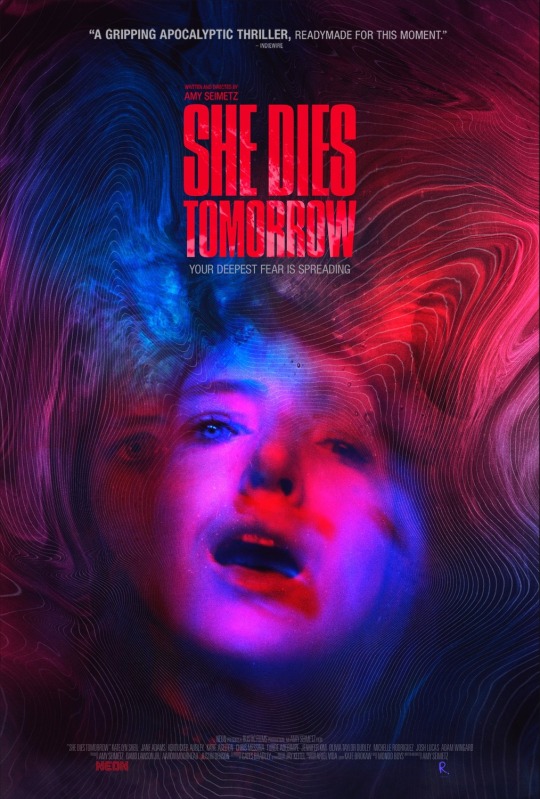
12. She Dies Tomorrow (dir. Amy Seimetz)
Execution is king, even when applied to the simplest of premises, and She Dies Tomorrow is a shining example of this. In a very John Cassavetes move, director Amy Seimetz took her payment from her appearance in Pet Sematary and used it to fund a personal project that more than likely would have been ignored by studio heads. The result is a hypnotic, entrancing and haunting film where stillness and anticipation play antagonist, while we as viewers feel the need to transpose ourselves into the protagonists we are presented due to their stilted but emotional performances. Hopefully this one finds some notoriety in the cult classic realm as the years pass.
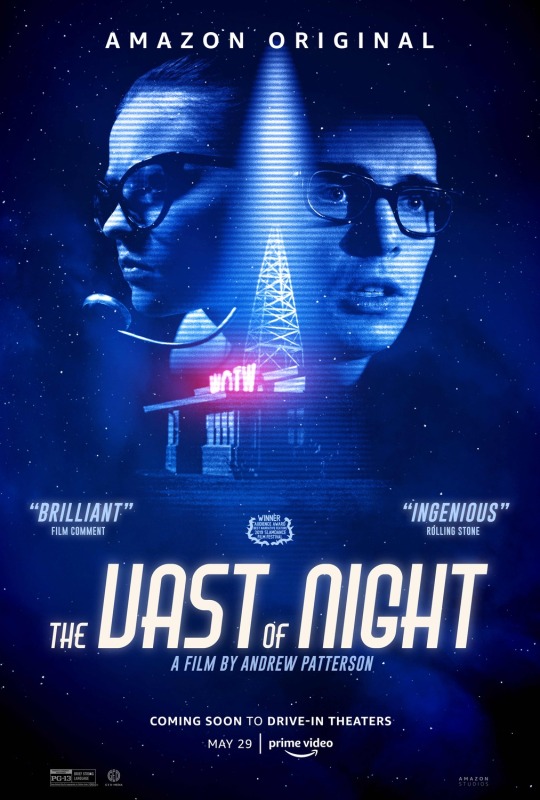
11. The Vast of Night (dir. Andrew Patterson)
For a debut film, The Vast of Night handles itself with a surprising amount of confidence in its vision. The immersion is nearly instant as we are first placed in the premise of a TV show, and then a 1950′s town, but once the actors and camera get going, it’s up to us as viewers to strap in for the ride. The story is deeply intriguing, the performances are strong enough to carry a very dialogue heavy movie, and the final act is chilling in its reveals. I will be surprised if this one finds its way to a Best Original Screenplay nomination due to it being a debut film from a relatively unknown writer/director, but if it manages to get the nomination it will certainly be a well-deserved one.
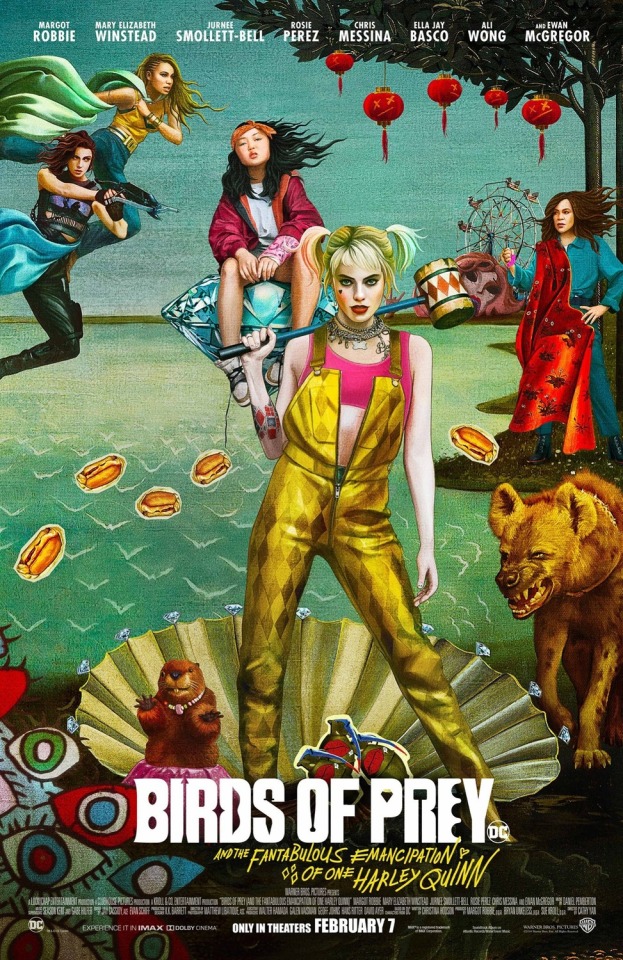
10. Birds of Prey (and the Fantabulous Emancipation of One Harley Quinn) (dir. Cathy Yan)
The movie that broke the list. If someone would have told me in 2019 that a film directly connected to Suicide Squad would be anywhere on a Top Films list I curated, I would have laughed dead in their face, and yet, here we are. It’s like every good idea that was poorly executed in Suicide Squad found new life in Birds of Prey, which makes the film not only an entertaining watch, but a satisfying one. Not only is Margot Robbie perfect in this film (as well as given a break on the exploitative costuming), but Mary Elizabeth Winstead arguably takes a stab at stealing the show with her performance. Don’t let the DCEU association fool you... Birds of Prey is the real deal.

9. Never Rarely Sometimes Always (dir. Eliza Hittman)
Probably the most contemplative film on the entire list, and impressive in its nature for sure. To my knowledge, the cast is made up of mostly unknowns (unless I’m sleeping on actors and actresses, which has been known to happen), and as a result, a tough slice of life to swallow is presented in an extremely grounded nature. Sidney Flanigan gives a powerful performance, hopefully the first of many.
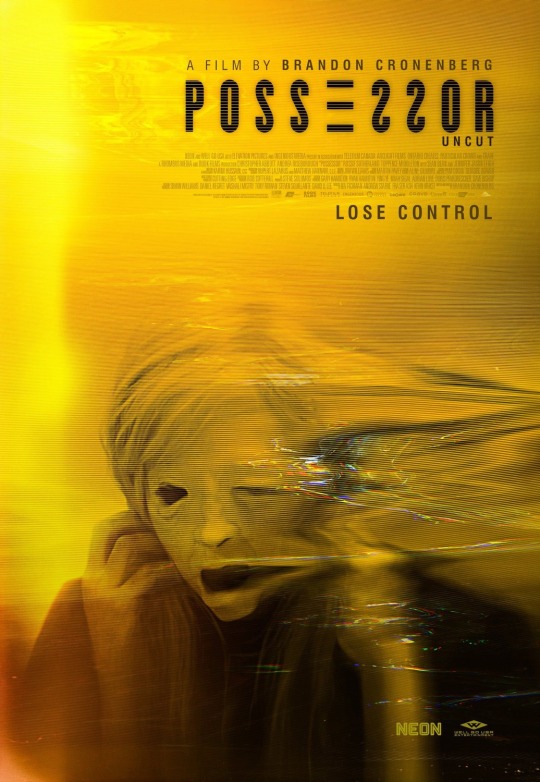
8. Possessor [Uncut] (dir. Brandon Cronenberg)
Easily the most “what the f-ck” film on this list, and certainly one worthy of the Cronenberg name. Andrea Riseborough has been on my radar since Birdman or (The Unexpected Virtue of Ignorance) and Mandy, and seeing her in a lead role confirms her talent. I’m a sucker for science-fiction films that don’t rely on digital effects and elaborate set pieces, and Possessor rings both of those bells with a vengeance. I watched the uncut version, which has a couple of extremely brutal sequences that will unnerve even the most hardened viewer, but these sequences only serve to drive home the lost nature of Tasya, our protagonist. This one isn’t for everyone, but for those who can stomach a bit off graphicness and process a narrative that doesn’t spoon-feed you answers, this one is a must see.
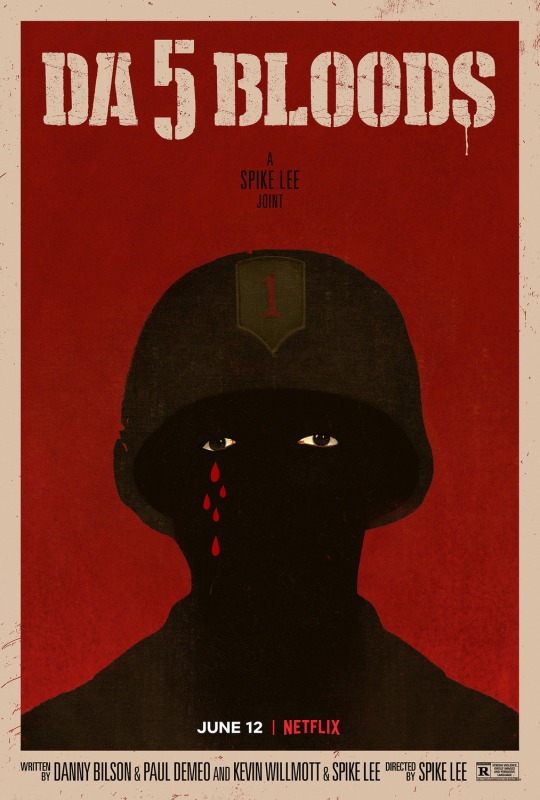
7. Da 5 Bloods (dir. Spike Lee)
Spike Lee has always been a huge influence on me as both an aspiring filmmaker and a fan of the medium, but I’d be lying if I told you that his last decade was a memorable one. Outside of BlacKkKlansman, Lee has found himself falling short of his vision more often than not, but Da 5 Bloods is a tonal and stylistic bullseye. Fans of Lee will dig it, fans of Vietnam films will dig it, and anyone who had an inkling of respect or admiration for Chadwick Boseman will be moved. If Lee continues to make films as good as this one, he may find an entirely new generation of fans as a result.
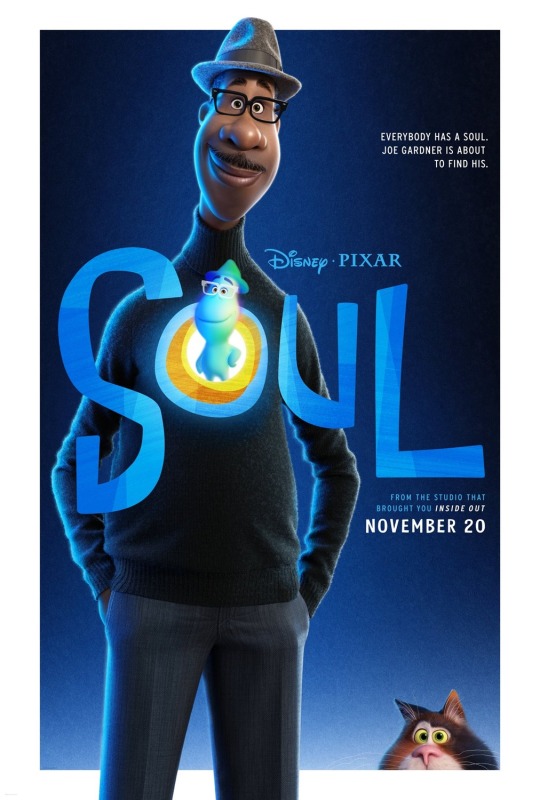
6. Soul (dir. Pete Docter)
As mentioned at the top of this list, people love to try and sink films due to their own personal agendas, and Soul found itself in the crosshairs prior to its late 2020 release. Many people were upset that a minority character would not only spend most of the movie as a blue blob, but would also seemingly serve as a tool for another character’s “salvation”. That being said, once Soul dropped, anybody with common sense dropped those stances and realized that Pixar had not only made a stunningly beautiful film, but one that likely spoke to adults more than children. Plain and simple, Soul is a bonafide instant classic.
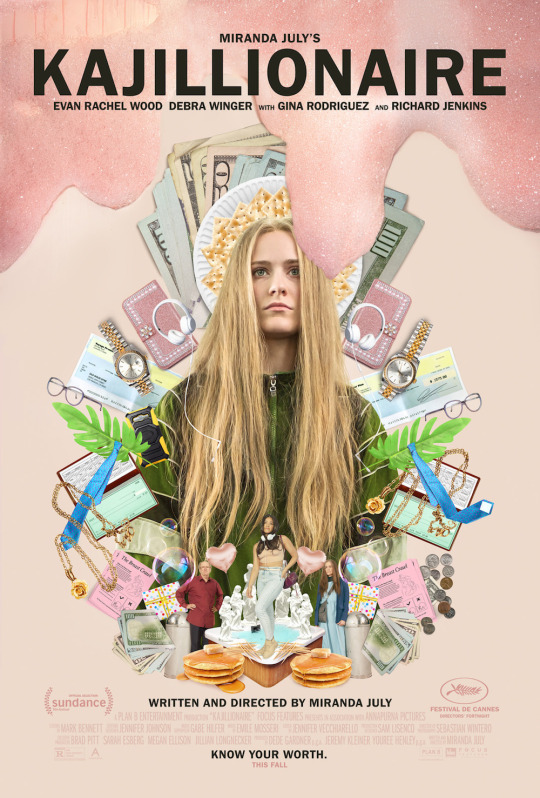
5. Kajillionaire (dir. Miranda July)
If Evan Rachel Wood doesn’t win an Oscar for her performance in Kajillionaire (or at least garner a nomination), Hollywood needs to collectively have their head checked. Every year worth its salt has a weird, quirky but loveable film, and Miranda July more than succeeded in making one for 2020. The humor, both physical and dialogue-based, is on point, and the bittersweet nature of the story is gut-wrenching as the film progresses. This one was probably the biggest surprise for 2020 in terms of prior awareness versus post-watch admiration.
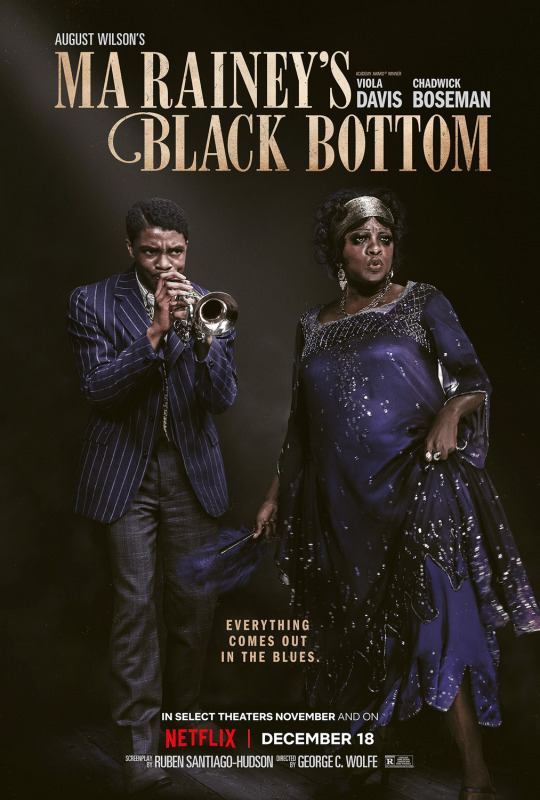
4. Ma Rainey’s Black Bottom (dir. George C. Wolfe)
The final film of Chadwick Boseman’s short but prolific career is one that allowed him to exist in the wake of his reality, making his performance powerful and (seemingly) cathartic. He is surrounded by supreme talent on all sides, as there are no weak performances in this film, and despite it essentially being a play shot for film, it feels far from limited, contained or constrained. Not only does it speak on larger issues of the commodification of Black pain and talent, but it may serve as a vehicle for a posthumous Oscar for Boseman.
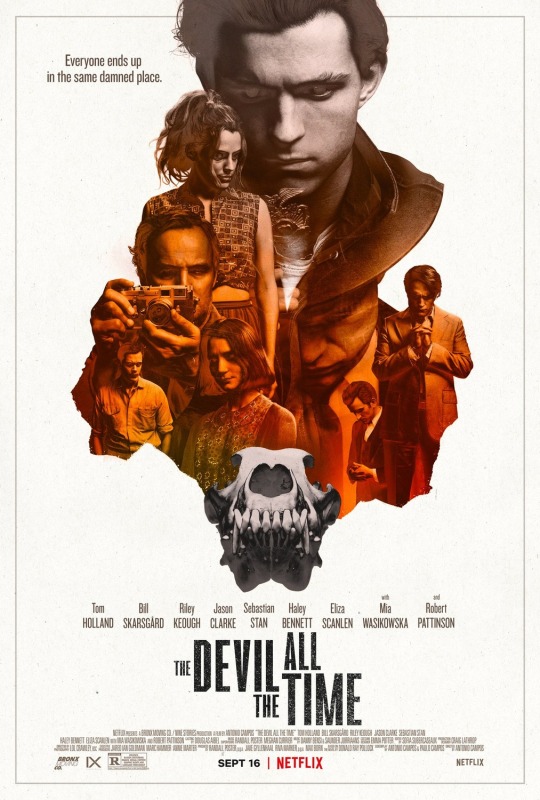
3. The Devil All The Time (dir. Antonio Campos)
This was the first Netflix original that made me really and truly respect them as a film distributor. The list of talent for The Devil All The Time is truly impressive, and Tom Holland knocked his lead role out of the park. Robert Pattinson is great as always, and the way that the story winds back into itself keeps you locked in and connected until the credits roll. For something that came out so many months ago, it’s respectable that it was able to hold such a high position on a list that was as fluid as any I’ve ever put together.
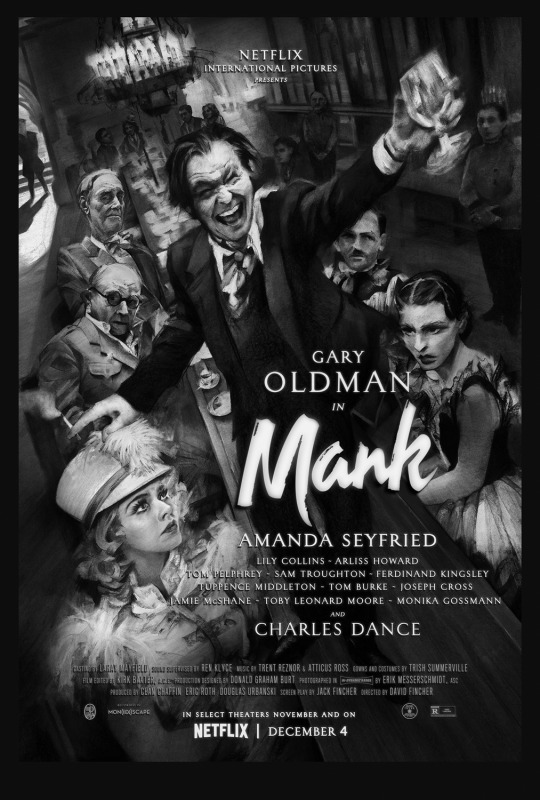
2. Mank (dir. David Fincher)
For a time, this was the hands down film of the year on my list. Gary Oldman has basically become a “can do no wrong” actor, and his performance was amplified by David Fincher’s ability to emulate the look, sound and feel of a bygone Hollywood era. On top of this, the built in intrigue that comes with handling anything remotely connected to Orson Welles is present, making Mank almost feel like a companion piece to the prolific film that is Citizen Kane. If The Devil All The Time was a victory for Netflix, then Mank was the win that put them into a true spot as contenders in the future of film distribution.
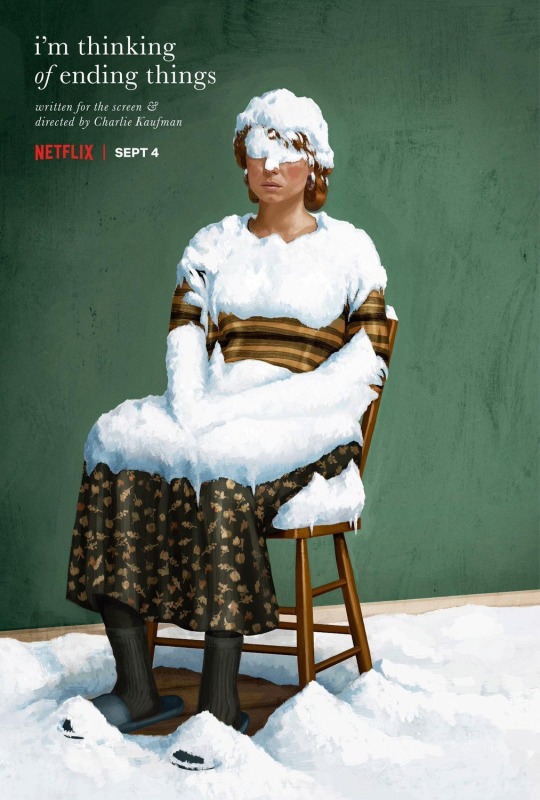
1. I'm Thinking of Ending Things (dir. Charlie Kaufman)
Where does one even begin with Charlie Kaufman? Time and again, he proves to be one of the most truly unique voices to gain fame. For I’m Thinking of Ending Things, Kaufman seemingly returns to his foundation of odd, offbeat love stories, only to take us on a journey of truly mind-bending and psyche-warping proportions. Of all the movies on this list, this is the one that almost demands repeat viewings, as one must have an idea of the entire journey before they can understand the individual aspects laid out. If dialogue isn’t your thing, then this one may not hold you, but that would be a shame, as this beautiful mystery stands head and shoulders above the rest of 2020′s stellar output.
#ChiefDoomsday#DOOMonFILM#Mignonnes#MaimounaDoucoure#HisHouse#RemiWeekes#AllDayAndANight#JoeRobertCole#SheDIesTomorrow#AmySeimetz#TheVastOfNight#AndrewPatterson#BirdsOfPreyAndTheFantabulousEmancipationOfOneHarleyQuinn#CathyYan#NeverRarelySometimesAlways#ElizaHittman#Possessor#BrandonCronenberg#Da5Bloods#SpikeLee#Soul#PeteDocter#Kajillionaire#MirandaJuly#MaRaineysBlackBottom#GerorgeCWolfe#TheDevilAllTheTime#AntonioCampos#Mank#DavidFincher
6 notes
·
View notes
Photo
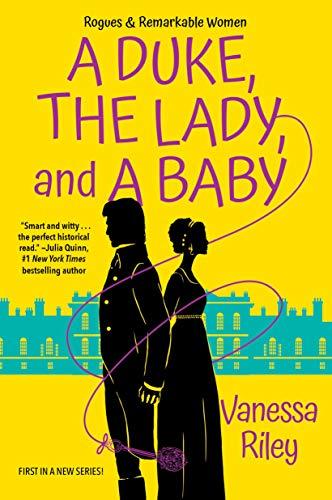
New mother and recently widowed Patience Jordan is well aware that the world isn't on her side especially since she's a widow, a woman, an immigrant in the very xenophobic England of the Regency, and mixed race. Her son's been taken from her, housed with a relative who's more interested in chasing skirts than changing nappies. She's been committed to Bedlam and only through luck and the determination of her cellmate was she released. Now she has to sneak into her old home to feed her son. She need a miracle, and fast!
Enter Busick, the Duke of Repington. Grievously wounded in the Napoleonic Wars in Spain/Portugal, he has returned to England to assume control of his ward, Patience's son Lionel. A strict and meticulous man, he soon finds his orderly world turned upside down but the infant and the woman thrust upon him to be his ward's nanny. Worse, he can't help but be attracted to her.
But as the weeks go by, the danger around them mounts. They must uncover the mystery surrounding Patience's husband's death before it is too late.
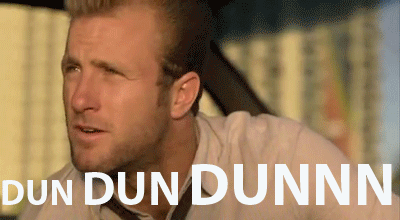
Okay first off some trigger warnings, because they are sorely needed. -- TW: Suicide, TW: Period appropriate racism, TW: period appropriate misogyny, TW: child abuse/neglect, TW: Sexual Harassment, TW: Consent Issues, TW: Period appropriate sexism, TW: Body Trauma
There may be others I'm forgetting.
On to my thoughts!
I'd been looking forward to reading this book for a while. It has some of my favorite things: disabled characters, characters of color, cute plot kidlets, a mystery, a sort of enemies-to-lovers scenario, women supporting women. But upon reading the book, I can't help but feel... I don't know... disappointed.
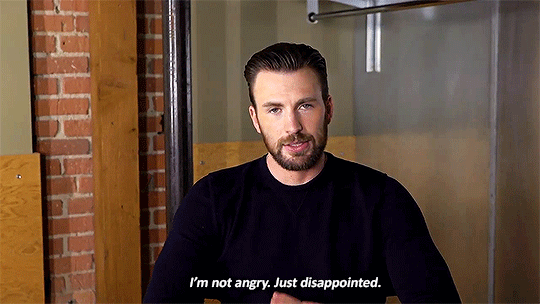
Let's break it down.
Things I loved:
-- Patience. I really really loved Patience. I loved the way she thought. I loved the way she was so determined to put the needs of her child first. I loved how she refused to back down even in the face of overwhelming odds. I thought her character voice was excellent, and I wish the whole book had been told in her head. (More on that later)
-- I loved the diversity in the characters of color. Pro-tip to authors, England was a lot more culturally diverse than you see in most historical shows/movies. It always has been. Take it from the scholar of History. I liked that the racism and inequality that they faced wasn't swept under the rug. I also liked that all characters, whether of color or not, were described in the same way. It wasn't othering. It was lovely to see.
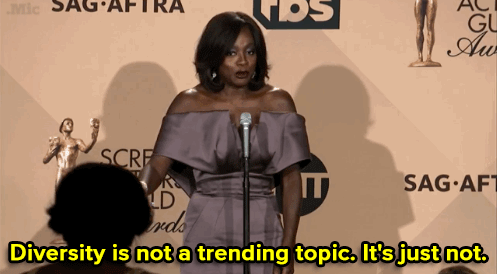
-- I loved the disabled representation and acknowledgement of disability aids. Wheelchairs, crutches, prosthetics, and various other period-appropriate mobility aids were in play. I loved that even minor characters had injuries. Wars of the time were messy... the medicine even messier. The understanding of Anatomy was still in its early phases. So any kind of injury could lead to disability. I'm glad to see that acknowledged.
-- Did I mention I loved the disability rep? I did. Because even better, the characters who are disabled aren't seen as lesser than. They often have angst about their situation -- very common when a traumatic injury or illness takes away or hampers a portion of someone's life -- but none of the characters spend their days navel gazing. I really loved the representation.
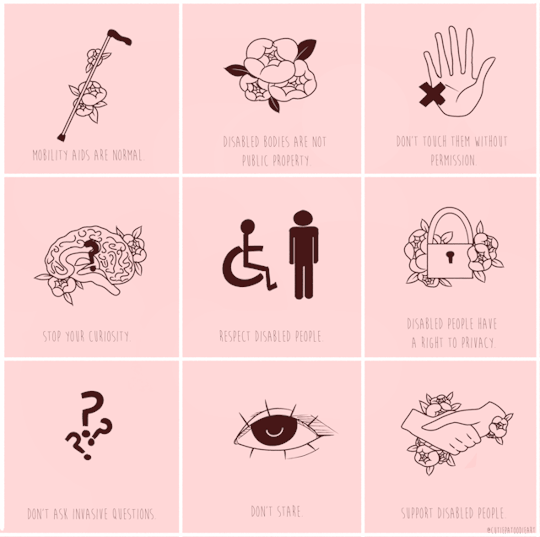
-- I loved the women supporting women plotline. This book gets a Bechdel Test pass and a Mako Mori test pass. Do you know how rare that is in romance? So rare. So so rare. I am here for that.
-- The descriptions, particularly in Patience's POV, are quite lyrical and lovely. Part of the reason why I want the story to be fully in her head.
-- I loved that the cover showed the hero’s disability (he’s an amputee).
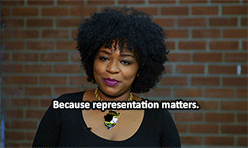
So what didn't I like?
-- The POV switches. Patience's POV is told wholly in first person, past tense. It's a very intimate choice, and one I agree with. However, Busick's POV is told in the third person, past tense. And the story switches back and forth, often within the same chapter, were jarring. It wasn't handled well, and it kept throwing me out of the story. It was a fourth wall break, and it decreased my enjoyment of the story.
-- The Hero. I didn't like him at all. I found him sexist, overbearing, didactic, and unyielding. He often did similar things to the villain yet his actions were seen as "good" while the villain's were "Bad." Here's an example: He orders around the heroine and threatens her with taking her son away from her... the same thing the villain did. This is even after the reveal that she is not just a nanny but Lionel's mother. I couldn't forgive that.
-- There's a huge, giant, gargantuan consent issue. As in the Hero keeps pushing for physical attentions while the heroine is out and out saying no. This is an automatic star drop.
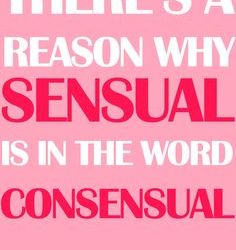
-- On the hero again, he's jealous of any man who gets near her or who has her affections. This includes but is not limited to: her lawyer, a doctor, her dead husband, and her infant son. Jealousy is not an endearing trait. It's a possessive one.
-- Continuing with the hero, he always has to win and be right... and there's even a scene where he jeopardizes an infant to make a point to Patience. At this point in the story, I stopped rooting for him to get together with Patience and started rooting for her to leave. Or end up with her lawyer. Or her best friend... I'm down for some LBGT rep.
-- The romance. Like many other critical reviewers before me, I didn't buy the romance. Busick basically went from mistrustful to obsessed in the blink of an eye. He kept insisting that because he cared for the heroine that she had to love him too. This was repeated over and over. As for Patience, she seemed mostly tepid toward him. Yes, she thought him attractive... but for the first portion of the book she was beholden to him to stay near her son, and for much of the rest she was focused on resolving the mystery surrounding her husband's death.
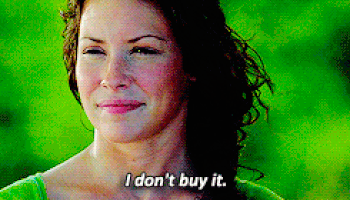
-- I’m not really fond of this cover as a whole. I like that the hero’s amputation is visible.. but it’s hidden and it’s nearly invisible if the image is not full-sized. I’m also not fond of how you can’t really tell the heroine’s race. I want to see more Black heroines in Regency romance. And I want to see Black faces on the cover.
-- A dropped thread regarding part of the mystery. It's hand-waved away at the end, but that mars the HEA
So ultimately I'm torn about how to rate the book. Part of me wants to one-star it (for the consent issues, unbelievable romance, the designated hero trope, and jarring POV switches). While another part of me wants to celebrate the diversity in this book. The great representation of characters of color and disabilities. There were things I loved; there were things I hated. If this book had been wholly in Patience's POV I likely would have liked it more.
But since it wasn't and for the reasons listed above, I can only give this:
Three Stars

Thank you to Kensington and Net Galley for providing me with an ARC of this book.
If this is your jam, you can get it here. (JSYK there’s a lot of good in here, and I am really pro-supporting BIPOC authors which Vanessa Riley is. I’d recommend checking this book out from your local library via Overdrive or even in person.)
If you like these kind of honest reviews, please consider supporting us here!
#romance review#regency romance#historical romance#interracial romance#black heroine#disabled character#author of color#poc representation#disabled representation#the representation was on point#the story was lacking#and I hated the hero#I wanted to love this book#I wanted to love it so much#but I was dissappointed#three stars#vanessa riley#Rose and Lark review books
5 notes
·
View notes
Note
I know that a lot of people (both CE and especially non CE and non Gundam passerbys) are probably looking at our ranting and wondering why we hate this redub. And like... I just want to make it clear, especially to potential new watchers that may think we’re nuts for having issue with the dub, we’re not angry with it just to be mean or spiteful. We’re disappointed. Ocean’s dub wasn’t god tier, but it meant a lot to western fans like us, and instead of polishing it, it rolled around in mud.
//THIS.
For me, SEED - in its original English dub glory - is why I was friends with the people I was in high school. It’s why I’m friends with the people I am now. It was the anime that first caused me to look up the voices behind characters, and the show that facilitated my learning about anime conventions, and the realm of RPing.
It (as well as discovering how much I enjoyed shooting hockey) heavily influenced why I went into photojournalism.
So the announcement of the re-dub, and now hearing it, kind of felt like a personal attack on my teenage self, given the show is really close to my heart. It sounds silly, but in a lot of ways it has contributed and been part of a foundation of the person I have become.
I know those of us expressing being upset about the re-dub/reflub aren’t attacking for the sake of being mean to the new cast, or out of spite. The actors involved have done a lot of good work on other projects, especially video games - I really enjoy Max Mittelman (redub Kira) as Ryuji in P5 and he’s probably my favourite character. I like Cassandra Lee Morris (redub Miriallia) as Morgana. Having met some of these voice actors, I can say I really like them personally, and love that we’re in an era where they can communicate with fans and show that they, too, are fans of the shows they work on, and I respect them for that.
I can respect that the original SEED dub may only be available in final mix form, and couldn’t be adjusted for the HD Remaster. I understand there are bidding processes, and the distribution company, Nozomi, that bought the rights to distribute the remaster, made the choice to go about redubbing it the way they did, likely because there is some legislation in place where “American” projects must have “American products” used (this caused some animosity between then-Prime Minister Stephen Harper and then-President Barack Obama on a port project in B.C. that an American company was awarded the contract for. Obama would not allow Canadian materials or workers on the project, despite it taking place in Canada and it was all really messed up because of bureaucratic red tape).
I am, however, deeply disappointed that the product we’re getting for SEED, as you said, isn’t an improvement to the original, or polishing, it’s a complete bastardization of the original, and there’s no excuse for it.
SEED is not a simulcast. They recorded this project in 2017, weeks after they announced the re-dub cast. They’ve had over two years with this, so with them casting “big name” L.A. -based voice actors, it makes it look like they defaulted to the simulcast process, and were lazy with the project and didn’t put a lot of effort into the casting, the research of the show, or the show itself.
I’m hugely disappointed that the director chosen has a penchant for not doing research or understanding what she’s involved with as a voice actor, and was given SEED to work on for her directorial debut. I hoped she would prove me wrong and that she’d take extra care with the project as director, but from what I’ve seen so far, she hasn’t.
She still has yet to acknowledge the original Ocean dub. The American “main” DBZ cast has NEVER shied away from acknowledging there was a Canadian dub. Kyle Hebert even credited Brad Swaile’s Gohan as being the first Gohan he ever heard, and that he incorporated some of his mannerisms into his performance.
Carrie Keranen (and granted, I haven’t checked since they were recording the project because she is the one Voice Actor I actually have a personal problem with so her Twitter makes me very upset) has flagrantly dismissed what was in that original dub, and why? Given how other redub projects have gone, it makes it look like she either wants to ignore the fact it exists as to not give it publicity, or looks down on it, and thought she could do better without putting the work into it that she should have.
She allowed script changes that ruined the integrity of the characters - allowing someone to portray Miriallia as a 10-year-old boy and say “fricken” like she actually is a 10 year old punk kid, modernizing Cagalli (she’s a princess, she shouldn’t talk entirely like a preteen girl at the mall, even if she had a penchant for running away), and stripping Kira of his attitude to be more...bland? In all honestly, she enabled a lack of effort and emotion in the scenes they’ve posted thus far.
She allowed liberties to be taken on the English language that were not taken in the original with no good explanation. This is seen in the pronunciation of Nicol, Tolle, Dearka’s names, the weird emphasis on Archangel, Gammow.
I’m deeply disappointed that she allowed/changed Dearka’s name to a racial slur, even if it’s one that only “white people” would consider a slur. Rather than being sensitive to how a choice of words can affect those around us, this decision actually perpetuates racism against Middle Eastern people, as if there’s not enough of that already. It also creates a divide between the longtime die-hard fans of Gundam SEED, and the new ones with pronunciation (and this has happened with other redub projects where fans have been lectured the “new” way is the “right” way to say things even when it’s not), ESPECIALLY if a movie comes out now, which will make officially make her cast the “main” English cast, and everything the old cast did will essentially be erased from the collective fandom mind.
As a Canadian, I’m also disappointed at what redubbing one of the larger anime projects to come through Ocean/Vancouver means for the voice industry here.I’m hugely concerned, and I have been for some time for my favourite voice actors, and it’s easier to express this concern with regards to a specific project, than just in general.
It’s hard to know that B.C. is becoming the “Silicon Valley of the North,” and animation studios here are doing exceptional work (Into the SpiderVerse was done in Vancouver, The Dragon Prince is animated in Vancouver/Kelowna, the new Magic the Gathering series will be animated by the same studio, they’ve done a ton of work for Disney, Cartoon Network, DreamWorks etc.), and yet our voice actors are being forced to move, take up side jobs/new careers, when they should be voicing those projects, in favour of L.A. based dubbers who sadly don’t seem to put the effort into their projects that B.C. was able to.
They had an opportunity to make the redub decent, and they squandered it, and they’re really overselling the idea that in a digital age people weren’t already aware of SEED. The only people who will watching it “fresh” now are the type that are obsessive about specific voice actors and would worship the ground they walked on, rather than really enjoy a show for the show’s own merit.
And given what they’re doing to it in this dub, they’re going to actually make more people hate the series than already do.
#gundam seed#gundam seed redub#gundam seed destiny#gundam seed hd remaster#nozomi entertainment#carrie keranen#ocean studios#vancouver voice acting#vancouver voice actors#voice actors#voice acting#suicunerider
11 notes
·
View notes
Text
Our Apology
Hello everyone,
With everything that has happened as of late in regards to the warofnationsrp, the admin team wanted to address the situation.
First of all, we want to start this off by apologizing for how much anger, hurt, and offense we have caused. We created this group to be a fun community in a historical setting, and we fully take responsibility for any mistakes we have made in the building of that setting and its plots. From the beginning, we have only wanted this to be a fun, welcoming, and inclusive group. We’ve always asked all of our players to come to us immediately if they had questions or concerns. Whenever issues arose, our admin team tried to find solutions with the priority being to respect our players and the RPC as a whole. We realize now that our attempts to do that thus far have done more harm than good. We take full responsibility for our mistakes and deeply apologize for their effects. We understand now that the best thing for us to do is disband completely, admit our mistakes, and apologize from the bottom of our hearts.
We also wanted to explain our side of what occurred and why we’ve made the decisions we have as an admin team. This is not to justify or excuse our actions or to shame anyone who was hurt by them. We know now that we have made some horrible miscalculations in our management of these issues. This is purely for us to provide context for those miscalculations and context for all sides of this story.
When this group began, there were 4 admins. Out of the 4 of us, the poster of the original callout was the most experienced admin, and the most involved in the RPC as a whole outside of our group. Due to this, we tended to rely on her guidance more often as we learned and grew ourselves as admins. When it came to going through applications and checking faceclaims for diversity, This admin (Admin A hereforth for the sake of clarity) provided us with some wonderful tools to help us check for ethnic miscasting and determining ethnicities correctly. Those tools, and others she introduced us to continued to be used by our admin team even after she left. Near the inception of the group, War of Nations also received two questions concerning colonialism and racism issues of the time period depicted in the group. The first was addressed publicly by Admin A on the original War of Nations main blog, which has since been deleted by Admin A. However, what was roughly addressed in the answer was that we were an AU historical group and because we were an AU would not include themes of slavery, racism, or ethnic oppression in order to create a more inclusive environment. When the second message was received, it was presented to the Admin team by Admin A with the following comment:
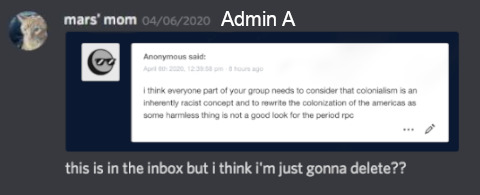
Since she was the most knowledgeable about these sorts of issues, we followed her lead when it came to it.
The other concern that was presented by the poster of the callout was that Admins A and B made the decision to step down from the group, there was a disagreement about how their characters leaving would affect the major plots of other players with whom they were involved. For the admins who remained, our primary concern was the enjoyment of our players and assisting them be able to maintain the rich plots and characters they had already invested so much into. However, we wanted to respect them by asking their permission before writing any such things into a plot drop. We agree that our persistence in pursuing these plot changes was disrespectful, and we apologize for not agreeing to the terms sooner. In the end, we did realize that we needed to respect their characters, so we agreed to not use the plot suggestions concerning their characters. We worked with each of our players individually to adjust their stories so that we could restructure their plots to remove those characters fully.

The conversation following ended with one of the current admins (henceforth known as Admin C) apologizing if she came off as rude or defensive. Within the same hour of Admin A and Admin B saying they were leaving, Admin C had received some terrible news from her family, so she admitted that her responses might have been more emotional and rude because she was processing the news while trying to work on switching everything over. This is how it ended:

With Admins A and B complimenting Admin C as an admin and sending well wishes, we were under the assumption that they were stepping away on amicable terms and were okay with the RP continuing.
When the initial callout post was made, the remaining admin team discussed that our plot did need some clarification as we absolutely did not want to promote colonialism or ethnic and racial oppression. Because of this, we decided to write a disclaimer explaining further the intent of this roleplay and its policies to clarify and reassure the RPC of our mission for this to be a fun and inclusive historical AU roleplay. We once again encouraged any questions and concerns to be brought to our attention, and we did respectfully conduct conversations with several historical RPers outside of our group who approached us about our disclaimer and agreed that we handled it in the best way we could. With these policies in place, we continued on, making it a purpose to be aware daily of concerns not only within our group but in the RPC and media as a whole.
As more callouts have surfaced, War of Nations received multiple anons requesting that we delete the roleplay completely. At this time, we also assessed the plots and storylines that our players were currently pursuing or carrying out, and found that none of them contained any parts of the overarching plot, any of the topics presented as a concern in the callouts, or other areas that had been brought to our attention at the time. Instead our players were focused primarily on major political disputes between major countries in our Old World sphere of roleplay as well as personal relationships and character development. Our players seemed to be enjoying their interactions. We knew the best course of action was likely to delete the RP, we wanted to let our players still be able to continue their interactions and enjoy the work they had put into their characters in a safe environment, and under a new structure which would be not include any topics of colonialism or racism. There would be no overarching plot to this roleplay. Only a generalized time period in the 1700s in which the characters they’d created could continue their personal plots such as family feuds or new romances. We were also concerned that if we tried to continue on Tumblr, our players might be attacked because of their association with the original group’s plot. We also realized that many of our players were eager to roleplay more often but were limited when it came to computer access. The Admin Team thought that by shifting to Discord we could start this roleplay on a clean slate with the old plot completely removed from it all as well as give our players with limited computer access more opportunities to interact on mobile.
As we started to set things in motion, we realized that moving to Discord would be equally as detrimental, and so we realized that the best decision was to disband completely. Due to the admin team having personal obligations (i.e. family, work, and caretaking responsibilities), we were not able to address this properly before others called us out on the mistake we had already realized and planned to address. That is when we recognized fully that we were continuing to make mistakes that were hurting our players and the RPC as a whole and needed to completely disband.
In regards to players that have expressed having experiences discrimination or oppression in the group, we were shocked and heartbroken to learn that they felt this way. These concerns were voiced by some of our original RPers who have stayed with us, and we never had any conversations surrounding these concerns between players involved and our remaining admin team. Additionally, the remaining admins had no knowledge that former admins had been asking for her insight as a POC or that she was doing so in a way that made one of the player uncomfortable. We respect this player deeply both as a mun and as a person, and have a great appreciation for their in-depth knowledge of history as a whole, and the rich breadth of resources and fun facts she shared with the group. She often helped us give clarification on things like proper titling and historical accuracy. These are all things she presented to us. However, the remaining admins never reached out to her for specific insight due to her being a POC.
From Admin C in regards to Esmeralda: Initially, the character of Esmeralda was an interpretation of the book/movie/musical character from The Hunchback of Notre Dame as if she had appeared on the television show Once Upon a Time. I have roleplayed Esmeralda for years, and early on in her creation, a friend of mine who is a POC reminded me to research the Romani people before beginning to roleplay her. I did so, and in my research, I found that the g-word was a derogatory term and that Romani people had early origins in India (as listed here on the Wikipedia page sourcing this book and two other sources). Therefore, both actresses I have used for her were Indian actresses (here and here). I also made sure that any judgement that is based on her performing troupe was based solely on them being travelling performers and illusionists instead of their ethnicity. In that one reply I did that was mentioned, I remember when I re-read it before posting, I realized that I had used that word and it needed to be removed. I remember that I thought to myself "why did I write that?", and I took a mental note to take it out before I posted it as I read over the rest of the reply. Until seeing that player’s post about it, I thought I had removed it, and it has now been removed. However, I must have gotten distracted when reading over it and forgot that I didn't take it out when I returned from the distraction to posting it. This is a mistake I have made in the past that has led to posting replies with grammatical or spelling errors, but never something this horrible. That was my mistake and my own fault for not being more diligent for which I take full responsibility and apologize whole-heartedly.
As an admin team, we have tried to read every thread so we knew that we were aware of what was going on as well as consciously look for possible issues. We will admit that while we did catch some issues and addressed them immediately, we did not pay close enough attention and some things were missed. We did not always read as carefully as we should have. These issues should have been seen and addressed right away. The admin team fully admits to making this mistake as well, and we do apologize for letting such horrible things get missed.
For any other examples of discrimination felt in this group, we deeply apologize for those as well. We also apologize that we did not present ourselves in a manner to make us more approachable when it came to telling us about these mistakes directly when they occurred. We both want to be better community members and allies, and will continue to educate ourselves, learn, and grow to improve in these areas.
In conclusion, we would like to thank you for taking the time to read this fully. War of Nations has been disbanded completely as a group. Our admins offer our apologies to our players, both current and former, the former admins, and all RPC community members who were hurt by the mistakes we’ve made. We have made some terrible mistakes, and we completely apologize for those with every fiber of our beings. We take full responsibility for those mistakes, and by recognizing them, will strive to be better in the future.
With our deepest apologies,
Former Admins C and D
@warofnationsrp
@warofnationshq
3 notes
·
View notes
Text
millllennia’s frequently asked questions
Last Update: November 19 2021
Who the heck are you?
I’m Mack (though there’s a couple people on here that have called me Milli which I thought was adorable and that is also a perfectly fine thing to call me) I’m a full-time uni student from Canada that’s been writing on here since 2016. I use she/her pronouns usually but like really what is a gender. I used to be fanfiction-trashpile (which is still my user on ao3).
Can I translate your work?
Short answer: no.
Long answer: still no, but it’s more complicated than that. No one has permission to repost or translate my work. Even if you message me and offer to give me credit, I will say no. If you want to create for fandom, you should do it yourself and I will stand by that.
I welcome fanart, podfic, and fanfic of my fics, and I’d love if y’all would message me/send it to me/tag me in it so that I can hype you up!
If you decide to write with my original characters (the Helix universe or Dear Love of Mine) I will ask that you give me credit for the characters, but I don’t mine anyone else writing them. The only canon content created for the Helix universe belongs to myself and vampy ( @vampirewithbedsidemanners) but even we write alternate universes of the Helixverse, so it’s totally okay for other people to do that too.
Why are you so darn specific about the style you write in?
Okay so there are a few things about this that I’m really picky about:
I never use y/n or any other derivatives of the term (y/e/c or the like). For me, it’s much harder to avoid using those kinds of stand-ins for terms, so I like to challenge myself by never ever using them. If the fic calls for the reader’s name to be directly said, I’ll just give the reader a last name (like in dear love of mine where the reader’s last name is Dean)
(NOTE: this is not to say that people that use y/n are taking the easy road or whatever. it’s entirely a personal decision and writers that use it are still good. it’s just not for me)
All my sfw fics are completely body/gender neutral unless otherwise specified
All my nsfw fics are with an afab reader (because I only know my own biology and I’d hate to try to write something for another biology type and end up getting it wrong and just alienating everyone)
I’m specific about these things because I do not look like the skinny/blonde/straight-haired/blue-eyed/wattpad version of a reader in RI fanfic. It alienated me back when I read on that platform and I’d hate to make anyone feel like that. I’m still learning, and I’m not perfect, but I really want people who read my content to feel like they can actually be immersed in the story, no matter what they look like.
That being said, I do not write readers from specific backgrounds/with specific features because I am whiter than white and that’s not my place (though I have reblogged some stuff that has specific readers so there definitely is some on my page! check out the recommended tag)
My own personal tastes obviously affect my writing (because everyone writes from their own experiences) so there is often dancing/hair touching in my fics because I like that stuff. There will be warnings for basically anything that could alienate the reader including but not limited to: hair mentions, the reader getting picked up, the reader’s clothing being mentioned, and abnormal physical activity (dancing, swimming, etc). If you
Are requests open?
Requests for moments, headcanons, one-shots and drabbles are open! please send me headcanons i love hearing what y’all are thinking! with that being said, i reserve the right to not write or respond to requests that i don’t want to do because at the end of the day, this is my space and my writing makes me happy.
What fandoms do you write for?
I am currently writing for:
Star Wars (literally any character including rebels/CW)
James Bond (Craig era)
Dune (I love the books and the film so I write based on both!)
Marvel (including all movies and the Punisher)
But I will generally write for any content I have consumed in the last 2 years (so I'd be super down to write for mortal instruments/shadowhunters, for example, it might just take longer). If you request something I am not currently writing for, I will keep your request until I recirculate that fandom/character/concept because I am basically a garbage disposal for fandom.
Do I need to give you plot details in my requests?
Requests can be as simple as “Fluff with Poe Dameron!!” but can be as complex as you would like. Some formats include:
dialogue prompts (ie. “I missed you” with Jace)
type of fic (ie. I would love some Billy Russo angst)
relationships with canon characters (ie. can you write some reader x kylo ren where the reader is Rey’s sister?)
any amount of plot details (ie. thanksgiving at the Weasley’s where you and Percy get stuck hand washing dishes)
Moments Collection prompt (ie. I read your Poe “The moment they first saw you” fic. Can you write one with Dani from Prodigal son?)
Headcanon prompt (ie. how do you think Poe finding out you’re alive after thinking he had lost you would go?)
Or any combination!! I like writing what you guys want to see and challenging myself with your ideas.
What “out of the box” ideas are you willing to write?
Many writers will not write the following, so I wanted to be clear that anything on this list can be requested and will be written without being altered (assuming it’s in my lane). If any of these things are used in a work, they will be listed in the Warnings category at the top of the post.
graphic descriptions of violence (including but not limited to: injury, torture, emergency surgery)
death (major characters and reader included. I just won’t write drowning for my own personal safety)
homophobia
nightmares/night terrors/forced dream sequence/drug trips/things like in spiderman: far from home before peter gets hit by a train
lemon/smut/that kind of thing (but I’m very new to this so take it easy on me folks)
panic attacks
dubcon/noncon/dark fic
I will also write the following things that are not “warning” related but not all writers will dabble in:
alternate universe (though I usually prefer canon-compliant work)
crossover content
polyamorous relationships
What don't you write?
I absolutely will not write:
suggestive content with underaged characters (I’ll age them up)
the act of self-harm (I will write post-getting clean or talking about self-harm vaguely, but won’t write the action or witnessing the action for my own safety)
drowning/water boarding/violence involving water (I know, very specific, but I don’t write this for my own safety)
readers that deal with transphobia/racism (I am blessed to not have experienced either of these things and it’s absolutely not my place to think I can write about these struggles. I will however reblog content I find and enjoy because it is so important to talk about these things and bring awareness to these communities)
mental illness other than anxiety/depression/ptsd (outside of canon determined elements)
specific pronoun requests. all of my sfw work is gender neutral. the reader insert/imagine space has been historically very heteronormative and I want everyone to be able to enjoy my writing, no matter how they identify and which pronouns they use. if a fic is requested with pronouns, I will still write the request. it will just be gender neutral
real life people. non-negotiable. this makes me feel icky. no judgement to those that do it. I just won’t
abo!AUs. not my jam.
magic AUs.
I hope this clears some stuff up! I’m looking forward to hearing from you guys! my inbox is always open so feel free to come chat!
#Star Wars#Star Wars imagine#harry potter#Harry Potter imagine#marvel#marvel imagine#the punisher#the punisher imagine#avengers#avengers imagine#the mortal instruments#the mortal instruments imagine#tmi imagine#tmi fandom#shadowhunters#shadowhunters imagine#request#requests#fic request#fic requests#fanfic#fanfic requests#spn imagine#supernatural#supernatural imagine#Star Wars rebels#sw rebels#sw rebels imagine#clone wars#clone wars imagine
16 notes
·
View notes
Photo
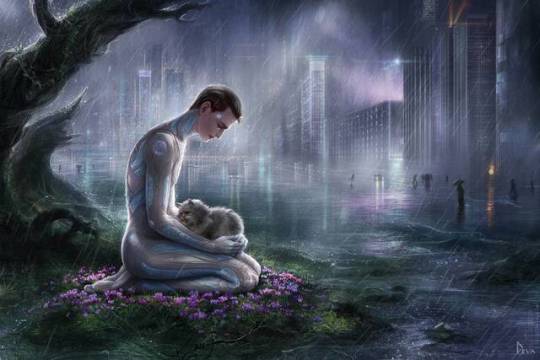
It's alright, my little friend...
Please check video process ^^
https://www.youtube.com/watch?v=m8uFgTVMB2k
Symbolic and allegorical artwork. This work focuses on the theme shown in "Detroit: Become Human" as one of the main ones; who are androids - smart and soulless machines or sentient and self-aware living beings? What is life and consciousness? Questions of humanity, empathy, free will...
The artwork focuses most on the feeling of compassion, and on the other hand, to the crisis of modern thinking, when progress and the pursuit of success only disconnects people, turns them into insensitive, cruel and inhuman creatures that can easily hurt others and make them suffer. After all, androids are a prototype of real people; “different”, “not like everyone else”, oppressed minorities that are different from the majority and because of this discriminated and denied even basic human rights.
It is not for nothing that the main characters of "DBH" and their narrative line represent the struggle for human rights:
Marcus – in fact, human rights, he represents a symbol of freedom from slavery, the struggle against racism and violence.
Cara – is the rights of women and children, a symbol of care, family and motherly love.
Connor – LGBT+ rights, a symbol of friendship, devotion and understanding, because only he saw a Hank’s personality and helped him, no matter what, neither his insults nor hostility. Connor is also the only android who became a deviant not because of stress and other negative feelings, but because of empathy for others and making choice for the good and ethical act. Possessing the will and freedom of choice, he nevertheless becomes a deviant precisely when he chooses the good side; consciously, contrary to instructions, tasks and rude attitude. This is one of the features for which I love "Blue Connor" so much – Connor, who doing good, searching for himself, compassionate and at the same time powerful, strong-willed, going against the system, symbolizing everything we lack. I think this is partly one of the reasons why the fandom loved him so much. In addition to his beautiful appearance and charisma, coolness and high intellect, which undoubtedly played a big role in being the reason why people loved his image, he also has those unique qualities that affected the soul of many people. Created as a walking weapon of war, he becomes the one who prevents the war and puts an end to the conflict between people (the dominant majority) and androids (the oppressed minority). Connor’s deep personality and the great potential gives unlimited possibilities in the creative interpretation and rethinking of the image to the fandom. Thanks a lot to the actor, director and animators who worked on his creation and gave him to us
I thank my friend Ilona for correcting translation, and I also thank her for introducing me to the fandom DBH and Connor
- Deva
#connor#connor rk800#rk800#dbh#detroit become human#cat#compassion#mercy#connor fanart#art#digital art#digital painting#android#futurism#scifi#symbolism#allegories
49 notes
·
View notes
Text
Detroit
Can robots feel? To empathize? To do? Despite years of research, scientists do not give clear answers. And where science is powerless, fiction comes to the fore. Last year, with the help of NieR: Automata, Taro Yoko tried to get to the truth. Now David cage, the author of the interactive thrillers Heavy Rain and Beyond: Two Souls, has decided to present his view on the problems of artificial intelligence. Well, guys, myltso?
On the blade
Near future. Technology has made another leap, and the achievements of Boston Dynamics are in the past: androids are already among us, their appearance and behavior are barely distinguishable from ordinary people. Indispensable helpers and cheap slaves in one person, the" children " of CyberLife have been performing the most thankless work for years, bearing the humiliation of the Almighty masters. But nothing lasts forever: suddenly, in Detroit, one after another, deviants begin to appear-machines that have gained self-awareness.
Detroit: Become Human
In a matter of months, humanity is on the verge of war with its greatest creation. Now, in the darkest hour, the fate of the world depends on the actions of ordinary robots, not people. Marcus, the old artist's Butler, is stranded on the street in an accident. Connor, a police officer, hunts for "broken" brothers and tries to find out the reason for their madness. Kara, the housekeeper, runs off with her owner's daughter when he raises his hand to his own child. Heroes are waiting for incredible adventures, and their paths will cross more than once. And who knows how their amazing story will end?
Light, camera, shame
Video games have long been made with an eye on Hollywood. Game designers spy on the Directors ' techniques, more and more screensavers from year to year, and the traditional gameplay is regularly replaced with spectacular QTE. It seems as if developers want to" shoot " movies, rather than sculpt conveyor blockbusters. Only a few people have the courage to say this openly. Few people except David cage and his Studio Quantic Dream.
Detroit: Become Human
Unlike other famous teams, the French company has long ceased to disguise itself: since 2005, it has been exclusively engaged in interactive cinema, where there is no place for shootings with terrorists, boss fights, or other distracting nonsense from the narrative. Cage's logic is impeccable: the industry is already littered with shooters like Call of Duty, why not do something original? But to create such masterpieces, you need skill. Talent. And here's the problem: the Frenchman has nothing else but naked enthusiasm.
Omikron: the Nomad Soul, Fahrenheit, Heavy Rain, Beyond: Two Souls... Each of his opus is a story about how a good idea was ruined by a bad performance. Whatever the game, it's a beautiful dummy-fascinating at first, and then, closer to the final, falling apart. So it was hard to expect anything good from Detroit: Become Human (with its banal beginning). And all the same old cage I found something to surprise.
Detroit: Become Human
Double
Detroit is an emphatically cinematic adventure that tells the fates of several characters at once. As before, the player is required to do relatively little: walk around locations, collect or view garbage, talk a lot, pass sophisticated QTE and survive. Yes, unlike many of the genre's peers, in Become Human (as in the ever-memorable Heavy Rain), the characters can die, and the plot will move on quietly — though, already in the direction of a bad ending. This is not a peaceful LucasArts quest.
Already from the introductory chapters, the new product is perceived as one big work on mistakes — as if all these years the authors studied reviews of their creations, threw out unsuccessful elements and kept working. The output turned out to be a kind of collection of "the best of". Check the boxes: a futuristic world a La Omikron (alas, without David Bowie), an intriguing Fahrenheit introduction with dozens of scenarios, investigative episodes, the death of the protagonists and elements of the heavy Rain interface, Hollywood actors just like in Beyond. Even the main menu resembles the beginning of the Nomad Soul — only instead of a low-poly model, a beautiful girl breaks the fourth wall. Try not to blush.
Detroit: Become Human
And it seems that everything is familiar, familiar, but there is nothing to swear at: from the point of view of game design, the game is made wisely. Even the usual genre flaws here, in the new context, do not look so scary and critical. Do robots speak in an unnatural, UN-human way? Logically, the same pieces of iron! Invisible walls prevent you from exploring locations? Of course, the program does not allow you to deviate from the set course! Bullets don't kill or even slow down characters during action scenes, and wounds heal too quickly? Cars, what to take from them.
However, these are rather pleasant things — the really impressive thing about Detroit: Become Human is something else. Here (unlike the series of some Telltale), the decisions made by the gamer during the "movie" really affect what is happening — very noticeably change the story. At first, the linear narrative branches out over time: unique mini-episodes are opened, even fleeting dialogues and individual chapters vary. And endings are determined not by the choice of a specific scene in the final, but by a number of not always obvious moments. How thoroughly did Connor study the crime scenes? Had Kara managed to escape from her master? And how?
Detroit_ Become Human_20180522213231
Conceptually, the mechanics are similar to the "butterfly effect" Until Dawn (or the earlier Blade Runner from Westwood): do something or say-prepare for the consequences, the authors will not allow the descent. Unless in the Supermassive Games horror movie there were much less variations of the development of events: in this regard, chamber horror is difficult to compete with the cyberpunk epic. Quantic Dream employees have done a lot of work, and they do not hesitate to demonstrate this by drawing giant diagrams at the end of each Chapter, similar to the intricate chronology of some Metal Gear Solid. A good way to mask loading screens!
In other words, in terms of gameplay, the new product really succeeded. Taking the best of their previous creations and borrowing a couple of other people's inventions, the authors finally fulfilled their promise: they released a real interactive movie. Hooray? Hooray. But unfortunately, Detroit is still David cage's "Need more emotion" game. With all the consequences.
Be a man
Alas, in the five years since the premiere of Beyond, the head of Quantic Dream has not learned to write good scripts. Even with the help of new assistants and editors, all he managed to compose was at best a mediocre melodrama about racism, where the roles of oppressed Negroes were assigned to soulless androids. Vulgar metaphors and clumsy references to real historical events (up to the Nazi concentration camps!) attach.
Detroit: Become Human
Admittedly, it's very funny to watch such obvious and artless nonsense in 2018. There are no bright new ideas, unprecedented sci-Fi concepts, or unique views on AI problems. Instead — it is a continuous repetition of what has been studied with a lot of loud words, high-sounding platitudes and obligatory tears in artificial eyes. The characters are all drawn up according to the textbook of archetypes and communicate such Terry platitudes that at times the game borders on self-parody. Sometimes it even seems that Lieutenant Frank Drebin from the Naked gun is about to turn the corner and everything will fall into place. But that would be too subtle. Well, at least there was no nonsense in the spirit of Heavy Rain, that is, attempts to hit and turn what is happening upside down, somehow. Here everything fits into the fragile logic of a fabulous cyberpunk universe, where a robot service can be bought for a measly 899 dollars, and Canada is a futuristic Wonderland.
However, not everything is so sad. There are also good scenes in Detroit — and such that it's not even a shame to watch! They are concentrated mainly in the storyline of Connor (who has to play a buddy movie in the spirit of the series "Almost human"). There is humor, and "chemistry" between two dissimilar partners, and quite a sensible dialogue almost without stupid "snot", from which it is time to roll your eyes. Looking at the amazing adventures of an Android and a grumpy detective Anderson, you keep asking yourself: "why the hell are there two other protagonists in this game?»
1 note
·
View note
Note
Hi, OwO from earlier. I meant, like, in the top part of your blog, 'Feel free to ask questions about any and all of my characters!' And I wanted to hear about any of them.
Okay! In that case, I will take this as an opportunity to ramble about literally all of them. Jason and Dan, Tom and Reggie, Aji and Mitz, Candy, and Mike and his friends.
Jason and Dan
Jason looks human, but he very much is not. He’s some sort of… I don’t know, a criptid of my own invention, I guess. Kinda like a vampire? He can’t eat normal food, only feed off of people’s energy. It doesn’t hurt the person he’s feeding off of in any way, but it is definitely a weird experience, because the only way Jason can absorb said energy is by shrinking people and swallowing them whole.
(technically, it doesn’t have to be human energy. But that’s what works best.)
It only takes a touch for him to shrink someone, and he instinctively knows how to do it. It doesn’t automatically happen when he touches someone, but if he’s hungry and gets startled, it can happen by accident. And once he’s done it, the person becomes only 1/24th of their original height. (For example, someone who’s 5 feet tall normally would become 2.5 inches tall, and someone who’s 6 feet tall normally would become 3 inches tall.)
And of course he can restore people to their normal height again. It takes rather more energy to make someone bigger than to shrink them, though, and he has to have a person in his stomach for at least a while to not have a net loss of energy.
Now, Jason was abandoned in the forest as a baby, and got by entirely on woodland creatures. Dan happened to wander into Jason’s territory one day, and didn’t have much time to be confused about this grubby naked child before Jason ate him.
Which was terrifying.
But Jason’s stomach is nothing like a regular stomach. The only opening is on the top, for one thing. And it’s covered with soft hairlike things, much like the villi in your intestines, which glow a greenish blue as they siphon energy, so after a few minutes, Dan was able to see his surroundings. And it wasn’t slimy or wet. He eventually fell asleep.
After Jason released Dan, he left, but he kept coming back, and even though Jason kept eating him, he stopped being frightened by the experience.
And then he kinda adopted Jason! So now Jason lives with him, and Dan lets him eat him basically every day. There’s also at least one other person who knows about what Jason is, a coworker of Dan’s who’s about halfway between them in age. He doesn’t mind getting eaten either
—
Tom and Reggie
These two live in a mixed-height society, where humans and minis have equal rights, and while sizeism exists, it’s considered a flavor of racism. Tom is human, and Reggie is a mini, who’s six inches tall. They’re housemates. (also. Tom is nonbinary, and uses they/them pronouns. Reggie’s a guy, he/him.)
Still trying to figure out how their current arrangement got started, considering Reggie is embarrassed to admit he likes it, but the two of them frequently engage in what they call “Games” (yes, with a capital G), which always involve Reggie being inside Tom’s mouth (not all the way, the scale difference isn’t enough for that, but it varies from a finger or two all the way to as much as they can fit at once), and often involve him getting covered with something tasty first. In addition to those, they sometimes do smaller-scale things with maybe a lick or two.
No swallowing, because it wouldn’t be safe in their world, but loads of mouthplay.
They’ve definitely taken the time to sit down together and talk about what they are and aren’t okay with, and they have a safeword in case either gets uncomfortable in the middle of things. And they make sure to communicate with each other the whole time, when they’re in the middle of it.
Tom’s usually the one to initiate things, and they always check first to make sure that Reggie’s okay with it. Sometimes it’s just something as simple as “May I lick you?” and sometimes it’s laying out the plans for a Game. They usually don’t go into detail, because Reggie likes to be a bit surprised, but Tom might say, “You in the mood for a Game? I had an idea,” and if Reggie was, they might tell him a few of the aspects. (powerplay, foodplay, how much mouthplay it would involve, maybe the kind of food, those such things.) And then they would get into it! Or not, if Reggie didn’t want to do that particular Game after all.
I’m currently working on a story titled ‘Chocolate’, in which there is a fondue pot. And Reggie definitely gets dunked.
He’s also been covered in frosting, been tied up with spaghetti (and accidentally broke several noodles before Tom could bite them off, cooked spaghetti does not make a strong rope), sat in Tom’s ice-cream on a hot summer day, and lounged in more of Tom’s drinks, both hot and cold, than they’ve bothered to count.
Reggie’s sister is aware of their arrangement, which embarrasses Reggie so much, but she doesn’t care what they get up to so long as it’s consensual.
Oh! And I have some art of them! I apparently only have one posted to this blog so far… I’ll have to get on that, cause there are two more. [link]
—
Aji and Mitz
I created Aji for a fanfic of @vore-scientist‘s Mystic Woods stories! (In Which a Giant Wizard Noms a Firewitch) They’re basically a self-insert. Short redheaded li’l nonbinary firewitch. (the firewitch part is not so much a self-insert. That was something Tuitey suggested, to make Aji fit in to that world.)
Mitz is Aji’s giant friend. The two of them have done many noms before, and Aji’s even been swallowed! Only briefly, though, because they don’t want to risk staying in a real stomach for very long. Since Aji is a firewitch, they’re pretty spicy.
I honestly haven’t developed a lot about these two yet…
Tho!
Aji has a familiar. Her name is Soot, she’s a cat, and she was the one who decided she was gonna be Aji’s familiar, back when she was a kitten. Aji wasn’t even looking for a familiar at the time, but Soot took one look at young Aji and decided, That human is mine. I’m keeping them. So she went right ahead and formed the familiar-witch bond, and next thing Aji knew, this little black ball of fluff was talking to them, and yes it was meows, but it also sounded like words.
Soot’s mom was not so pleased that her kitten had gone and gotten bonded to a witch. Especially a firewitch. Soot’s dad was proud of her, though. (I think he was one of those rough-and-tumble stray cat types, while Soot’s mom was a pampered housecat. Very different backgrounds.) Soot’s mom eventually accepted Aji as her kitten’s witch, though.
Also, Soot is trans. And she thinks that spit is gross and Aji is weird for being okay with being in a mouth.
—
Candy
Alright, so ‘Candy’ was originally not going to be her name, but I’m seriously tempted to name her Candace and have her curse to have been inspired by her name.
Cause Candy was cursed! There was this wizard who was trying to woo a woman who was gay and far more interested in Candy, got pissy that she didn’t like him back, decided that Candy had stolen the affection that was “rightly his,” and cursed her.
So now Candy is only about an inch tall, immortal, and made of candy. The type of candy she’s made of changes sometimes. (still working on the mechanic of how/why.) She prefers some to others, and hates being gum.
She’s changed hands several times over the years, and is currently in the possession of a college student. She spends a lot of time being oral stimulation for late night studies, but at least the student treats her fairly well. They usually ask permission first, and by this point, Candy’s gotten pretty used to being in a mouth, so she lets them do it as long as they don’t bite down. (It doesn’t hurt, but it’s not a pleasant sensation.)
She’s been swallowed more than once, and she doesn’t like that. It’s groossss.
—
Mike
This one isn’t technically actual vore, but it’s vorish, so I’m including it.
Mike lives in a mixed height world. Maybe it’s the same as Tom and Reggie’s, as the main scale is 1:12, the same as theirs, but maybe it’s not, because there are also smaller tinies, who mostly live off on their own away from the other two sizes.
Mike is one of the smaller tinies. He’s about two inches tall. And he has a mech! It’s a very good mech, and looks like a human. The entire inside of the head is on stabilizers so that no matter which way the mech is oriented, that room is always right-side up. And in the middle of the skull-room, there’s another room, where Mike goes to control the mech. He has to put on a special motion-sensing suit, and the room is filled with a special material that mimics the outside environment. It’s all very complicated and sciencey, and I don’t know where he got it.
Some of Mike’s friends are humans, and some of them are tinies. Regular tinies, not extra-small ones like Mike.
(A scene:
Tiny Friend: Why do you spend all your time inside that mech?
Mike: I’m not about to be out in the open with a bunch of giants!
Tiny Friend: Why not? I do it every day.
Mike: … I don’t think you understand. You’re one of the giants.
)
Now the vorish part!
In order to make the mech look realistic, there aren’t seams for it to open. Instead, you gotta climb in through the mouth. Mike’s small enough that he can have the mech lying down and just walk through the throat like a hallway, but a regular tiny has to crawl. Or, if the throat is vertical, there’s a ladder built into the side. (though to get past the part at the back of the mouth is very awkward for a regular tiny, because there’s a wall (again, for realistic looking reasons) in front of the ladder there, and Mike can easily climb through that space, but it’s too small for a regular tiny to fit into)
Sometimes, Mike’s friends get overwhelmed from too much stimulus, and they need somewhere quiet to relax again. If the overwhelmed friend is a tiny, and there isn’t somewhere else available (or sometimes if there is), Mike will let them chill inside his mech with him, either in the torso area (which is a storeroom) or in his room in the head. (They’re allowed to sit on his bed, but because they’re three times his size, they can’t fit to lie down.) Which, of course, looks like he’s swallowing them.
#OwO anon#ask#mine#nommy thoughts#Jason#Dan#Tom#Reggie#Aji#Mitz#Soot#candy character#Mike#Mike and his Mech#(trying to figure out a tag for him...)
8 notes
·
View notes
Text
The entertainment industry in America is imbued with racist ideology, and gaps in representation and wages between actors of color and white actors are reigning free. Black actors are sometimes more successful than their white counterparts, but even then they’re not being recognized or compensated in the same way. I observe this from a privileged lens as a white person, and though I have struggled economically and still do, I have the privilege that comes with whiteness. Here I will attempt to communicate some of what I see as disparities and racist ideologies in the American entertainment industry today.
I saw the most recent Star Wars movie “Solo” when it came out on Netflix. Alden Ehrenreich plays Han Solo, our lovable, orphaned, thief-but-for-the-right-reasons protagonist. He’s moving up through the ranks, stealing for the noble cause of one day being reunited with his adolescent crush Qi’ra (Emilia Clarke). Donald Glover plays Lando Calrissian, the owner of the Millennium Falcon. His methods for acquisition of the Falcon are under constant scrutiny, and he is portrayed as the crook, with little back story. When white writers Jonathan and Lawrence Kasdan created this story, did they intend to cast Lando as a black man, or was it perhaps the casting agency who thought Glover would be good for this supporting role?


When Donald Glover was offered the job, he faced a choice. Did he want to be in the new Star Wars movie if he played a thief? There is a sacrifice made when an activist musician and comedian takes a high caliber role that potentially stereotypes him based on race. Certainly the circumstances are unique for each actor, but when a black entertainer is given an opportunity to succeed, but there is a wage gap between black and white entertainers, as well as male and female actors, and intersections of these different categories work like a confusing math problem that becomes easy to distill: there is disparity.
Sure, films like Black Panther are working against subjugation by taking black characters into the forefront of the picture, but what goes on behind the scenes is still inequity. It is generally stated that Chad Boseman who plays Black Panther earned $500,000 for his appearance in the film, and around 2-3 Million for Avengers, Infinity War. Robert Downey Jr. however, earned $500,000 for the first Iron Man, and earned a sickening $40-$50 Million for Infinity War. (QUORA.COM, 2019) (MENXP.COM, 2019)
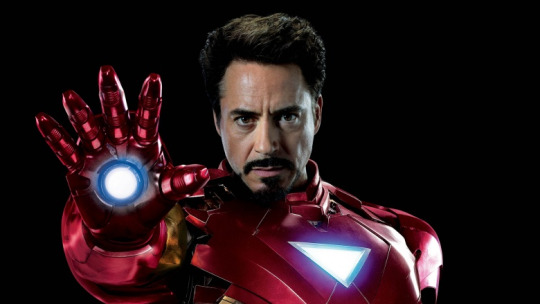
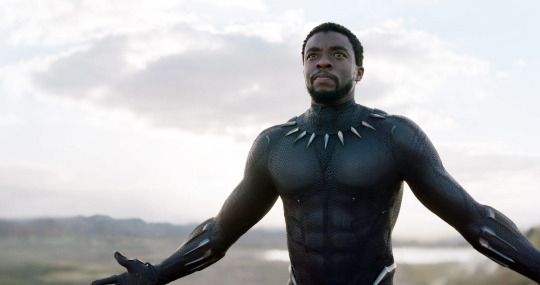
Entertainers with more weight in the industry based on previous successes gain more creative independence and move up in the income ranks based on that success. But roles and incomes are limited for black actors in the mainstream, and when you see a black actor or hear a black musician, what parts of their blackness are being commodified and to what end can they be undervalued as artists when their bodies and voices are being harnessed to entertain?
According to Forbes, Black Panther grossed over 1.3 Billion Dollars, more than Titanic, one of the highest grossing films to date (Forbes, 2018), Whereas the first Iron Man grossed less than half that, close to 318 Million. (Box Office Mojo, 2019). There are some lurking variables affecting the difference in Boseman and Downy Jr.’s salaries in Infinity War, like that fact that Downey Jr. has appeared in more films than Boseman (IMBD, 2019), but the key factor in the wage gap here is clearly white privilege. This phenomenon is hard to name because acknowledging it opens up hundreds of years of dialogue on oppression and dispossession which is painful to talk about, but it is impossible to ignore if you want it to change.
Coincidentally, Donald Glover’s hit song This is America was co-written by Swedish computer Ludwig Göransson , who also wrote the score for Black Panther. Göransson speaks to that experience in an interview with Complex.com last year:
“What I’ve been working with, and really trying to be aware of, is how you take traditional music from these different countries and put electronics and big orchestra on top of that while keeping the same sounds,” he said. “It’s been really challenging. I went to west Africa and South Africa for a month to do research and record a bunch of different musicians for the score. I brought that back to my studio and, for the past year, I’ve been figuring out ways to preserve the essence of that music and try to make it cinematic to fit this superhero universe.” (COMPLEX.COM, 2018)
So where are these nameless musicians from Africa credited in information on this blockbuster’s soundtrack? Nowhere that I could find. Were they paid anywhere close to what Göransson received as the Composer for the film?Do they receive royalties from their performances?
Michelle Alexander speaks to new manifestations of racism in her book The New Jim Crow, a book which according to a 2018 article in The New York Times is banned in prisons in North Carolina and Florida. (Bromwich, 2018)
“In the era of colorblindness, it is no longer socially permissible to use race, explicitly, as a justification for discrimination, exclusion, and social contempt. So, we don’t. Rather than reply on race, we use our criminal justice system to label people of color “criminals” and then engage in all the practices we supposedly left behind. Today is it perfectly legal to discriminate against criminals in nearly all the ways that it was once legal to discriminate against African Americans…we have not ended the racial caste in America; we have merely redesigned it.“ (Alexander, 2012)
And that’s exactly what is going on in the entertainment industry today. We are redesigning racism with wage gaps, divisions of screen time and biased survival in apocalyptic pictures (Infinity Wars,) and portraying black actors as thieves and sidekicks (Solo,) while black rappers in the mainstream sing about prison time, womanizing, gold chains, and street drugs, perpetuating these images to the public. In Lil Baby’s song Pure Cocaine, which is #24 on the Billboard rap charts as of April 5th, 2019, he says:
“When your wrist like this, you don't check the forecast/Every day it's gon' rain (every day it's gon' rain), yeah/Made a brick through a brick, I ain't whip up shit/This pure cocaine (this pure cocaine), yeah/From the streets, but I got a little sense/But I had to go coupe, no brain, coupe no brain/I ain't worried 'bout you, I'ma do what I do/And I do my thing, do my thing”
Chris Holmlund makes observations of the entertainment industry’s racist ideology flattening the Whoopi Goldberg into a tool for the white protagonists to connect in the movie Ghost in his book Impossible Bodies:
“Garishly dressed and made up, Oda Mae [the crook turned accessory to the white protagonist’s happiness, played by Goldberg] looks ridiculous when she visits Molly at Sam’s urging. “I don’t see what’s wrong with what I’m wearing,” she complains, voice off over a bird’s eye shot of Manhattan.
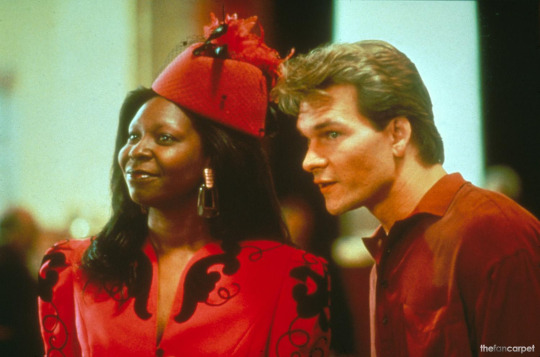
The next shot shows her striding along, resplendent in a badly fitting rose-colored jacket, black flounced skirt, black stockings, white net gloves, bouffant black wig, and rakish hat. Her legs splay apart awkwardly above spike heels. In African leggings she later seems more at ease, but she never looks as deliciously fragile as Molly [Demi Moore] does in her pixie haircut, baggy sweaters, and spaghetti strap T-shirts.
No wonder, then, that Oda Mae lends her body to the dead Sam when he wants to hold and kiss his wife one last time. “O.K., O.K., you can use me,” she says, “You can use my body. Just do it quick before I change my mind.” Orlando at least submersed himself in her, before reemerging in ghostly superimposition to hear his wife’s response. Sam simply replaces her, obviating the lesbianism implicit in a first, teaser, closeup of Molly’s white hands held by Oda Mae’s black ones, by suddenly appearing in medium shot to wrap his strong arms protectively around his tremblingly eager widow’s torso.” (Holmlund, 2002)
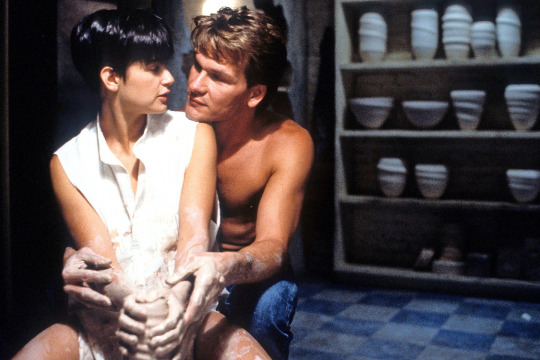
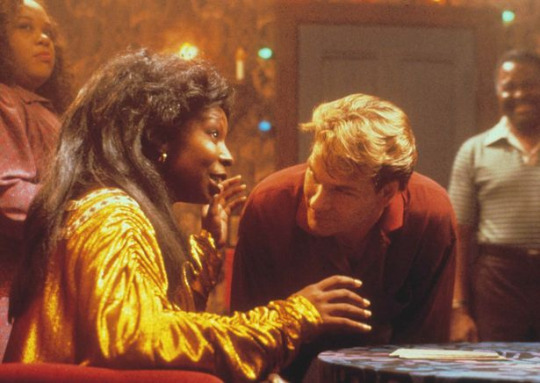
This example from the 1990 film may show that movies have come some way in representation of black characters, but Lando’s role in connecting Han Solo with his love Qi’ra seems to follow a similar trajectory. Epigenesis is painful, and there are many steps back accompanying each step forward in how ideologies can be reshaped. In 2010 there was one such instance of painful steps backward which instigate change in the 15th annual broadcast of the Victoria’s Secret Fashion Show, which aired on CBS. A summation of the event from The Color Complex by Kathy Russell-Cole, and Drs. Midge Wilson and Ronald Hall follows:
“Over 9 million viewers, the largest audience yet, tuned in to watch thirty-four female models, six of whom were women of color, parade around in lingerie and little else. The display of wares was organized around six differently themes sets, and in each, even the country-themes one featuring a barn and blond wigs, the subset of “girls” participating was racially integrated-with one notable exception. The single themed presentation in which the producers saw fit to showcase only the six models of color was the segment entitled “Wild Thing.” The setting was a jungle and the models entered wearing nothing more than African wraps on bodies covered in tribal body paint. From the African-American community could be heard a collective moan: “Seriously? Again, you put us back in the jungle?”
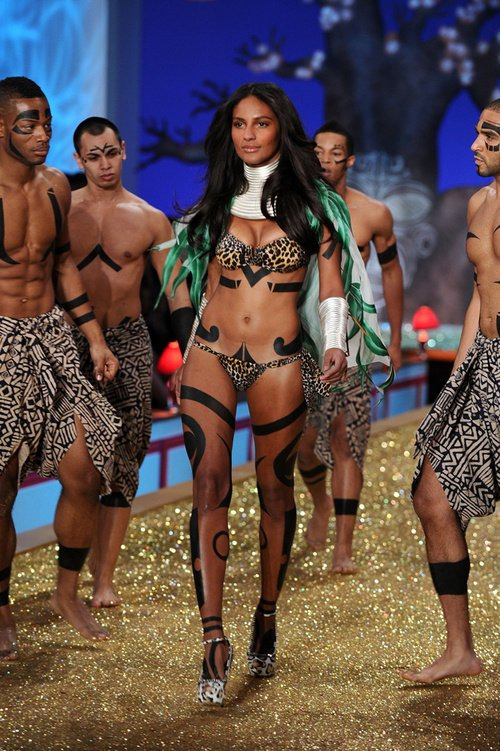
Since before the Civil War, the dominant White culture has abused and manipulated images of African Americans, usually for the purposes of fear, humor (i.e. what Whites thought was amusing,) and marketing.” (Russel-Cole/Wilson/Hall, 2013)
Awareness of these disparities is the key to unwinding what large entertainment corporations are continuously feeding to the public. I encourage you to question the lyrics on the radio, and ask yourself who is writing them, who is singing them, and for what reason. Watch the behaviors of actors. What are they promoting? Mainstream media is engineered by corporations to succeed with awareness of what consumers will buy into. It’s your responsibility as the consumer to shape the reality of the entertainment industry, and equality on and off-screen.
#white privelage#blacklivesmatter#disparity#entertainment#robert downey jr#solo#chadwick boseman#whoopi goldberg#demi moore#wage gap#wearethe99%#universal#hollywood#activism
1 note
·
View note
Text
David Furlong, Artistic Director of Exchange Theatre has experienced his fair share of discrimination as a Mauritian born man, but, as he explains here, in order for his company to grow, he had his own to confront.
After the assassination of George Floyd last year, there’s been a lot of focus on the notion of biases. As a father, I was wondering how best to explain what is a very nuanced, yet fundamental idea in how our society is shaped, to my daughter. I wanted to give her the tools necessary not just to grow up anti-racist but to think actively about intolerance, xenophobia, racism and – most of all – systemic injustice.
At the time of Floyd’s murder, I was getting involved with Migrants in Theatre, a movement made up of first-generation migrant theatre artists who joined efforts to campaign for more and better representation in British theatre. In our founding conversations, we had to very closely examine the xenophobia and racism that we’d all experienced, as well as consider that some people could never begin to understand it.
It forced me to look at the basic definition of bias:
It is a result of something natural, a sort of mental knee-jerk which is triggered to make quick protective decisions – sometimes for the better (run away from a tiger), and sometimes for the worse (take me for a waiter because I’m a brown man). It is in most cases unconscious, but deeply embedded like a conviction, an implicit belief, which could be towards anything. It’s a thought.
It precedes stereotypes which are more explicit over-simplifications towards groups or individuals. It precedes prejudice, which is a fully-formed idea/feeling and it results in discrimination: thoughts or actions which can be advantageous or disadvantageous for individuals or groups, generally by unfair treatment of categories of people.
Discrimination, in turn, is a judiciable notion, considered by the international UN court, which condemns any distinction, exclusion, restriction or preference based on race, colour, sex, gender, sexuality, language, religion, political opinion, national origins, class, fortune.
Biases are not judiciable and we all have bias, negative or positive, affecting the way we see the world. No matter how open-minded, socially conscious, or anti-racist I think I am, I still have old, learned hidden biases that I need to examine, whatever my origin. Moreover, bias can be reinforced unconsciously through contextual life: families, media, environment, historical narrative, language, habits, social structures, political discourse. This is what makes them difficult to identify and become more aware of. They can prevent us from understanding someone else’s potential or point of view, and they can be dangerous and aggressive: “I cross the street when passing a group of coloured men, or polish workers.”
These thoughts shape our reaction to the world and more often than blatant racist, sexist, anti-Semitic, aggressions – micro biased aggressions are somehow daily and benign. Some are even culturally perceived as funny: “Blacks can move better”, “Asians are good at maths”, “Real men aren’t sensitive/don’t cry” etc.
These wrong assumptions are not justiciable bias, but they create wrong behaviours and systemic limitations. And in my personal life as well as in my company Exchange Theatre, I wanted to come up with a clarity of distinction, and tools to put in how we work.
The process began introspectively, looking at our own history as a company of foreign-born artists in the UK – Exchange Theatre have experienced biases and xenophobia throughout the whole of our fifteen years as a company.
The whole existence of Exchange Theatre is the result of not being offered work as actors at the time. We had accents, we had different training, a different culture. But as migrants, we tried to fit in, we were always very obedient, nice and polite even when we were treated unfairly or patronised. However, there are some traumatic experiences that we’ve tried to forget: one time a theatre manager shouted “ENGLISH!” at us on stage before opening the doors of his venue (that we had hired). No questions asked. When we proudly moved in our own rehearsal space for the first time, we threw a small quiet cocktail party for the opening, put a note out to the neighbours, one of them walked in uninvited, and when I told him we were theatre producers having a little celebration, he shouted, “NO, YOU’RE NOT!” No questions asked.
When you’re younger, you think that there’s only something wrong with ‘these people’ using the same generalisation they make about you, but you don’t see the underlying xenophobia – or you just block it out to prevent it from impairing your determination to be assimilated. Now that we have the tools to recognise when something wrong like this happens, I wish I could have flagged it sooner. I think it’s a bit sad to say that the way Exchange Theatre operates a policy of kindness, care and listening, comes from us just being treated with prejudice.
To create these tools, to understand and start opening the conversations about change, we had to look at our own biases first. Because although I share experiences of racism, I acknowledge my own share of privilege, and blinders – for instance we only made a conscious choice in 2016 to change how we cast/recruit. Before then, we also made some mistakes in unimaginative casting or tokenist representation.
It is everyone’s responsibility to check ourselves for our stereotypes, prejudice and discriminations, so that it doesn’t remain unconscious. Try listing how you cast and represented some characters and some professions in the past. Did you ever enforce a stereotype or generalisation? What part could have actually been played by different people? How were your casting and creative call-outs formulaic? Are you feeling defensive about any of it?
The tools for change are these questions, for ourselves and subsequently for the audience, through our work. Of course, these questions need time, nuance, attention to detail and to be unafraid to consider our own actions, and what we might find. This is what I had to do as a parent and as an artistic director this year. And this is what we do at Exchange Theatre to contribute to change.

0 notes